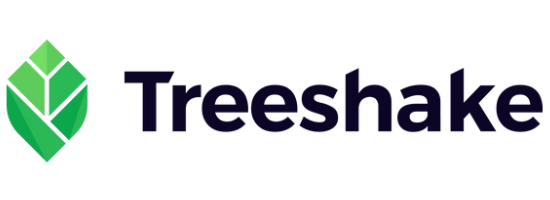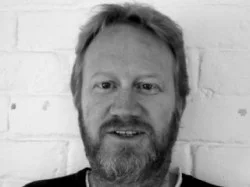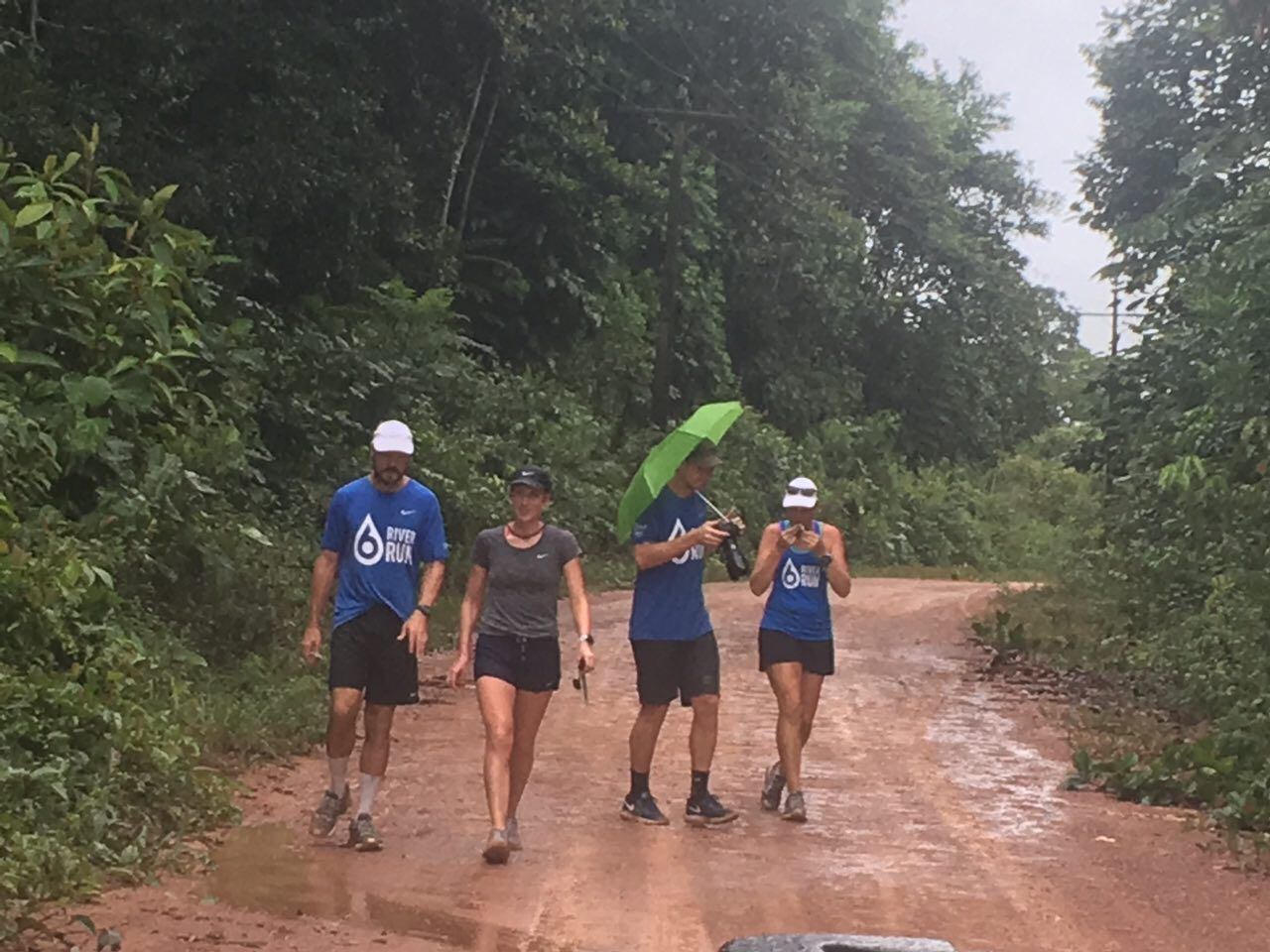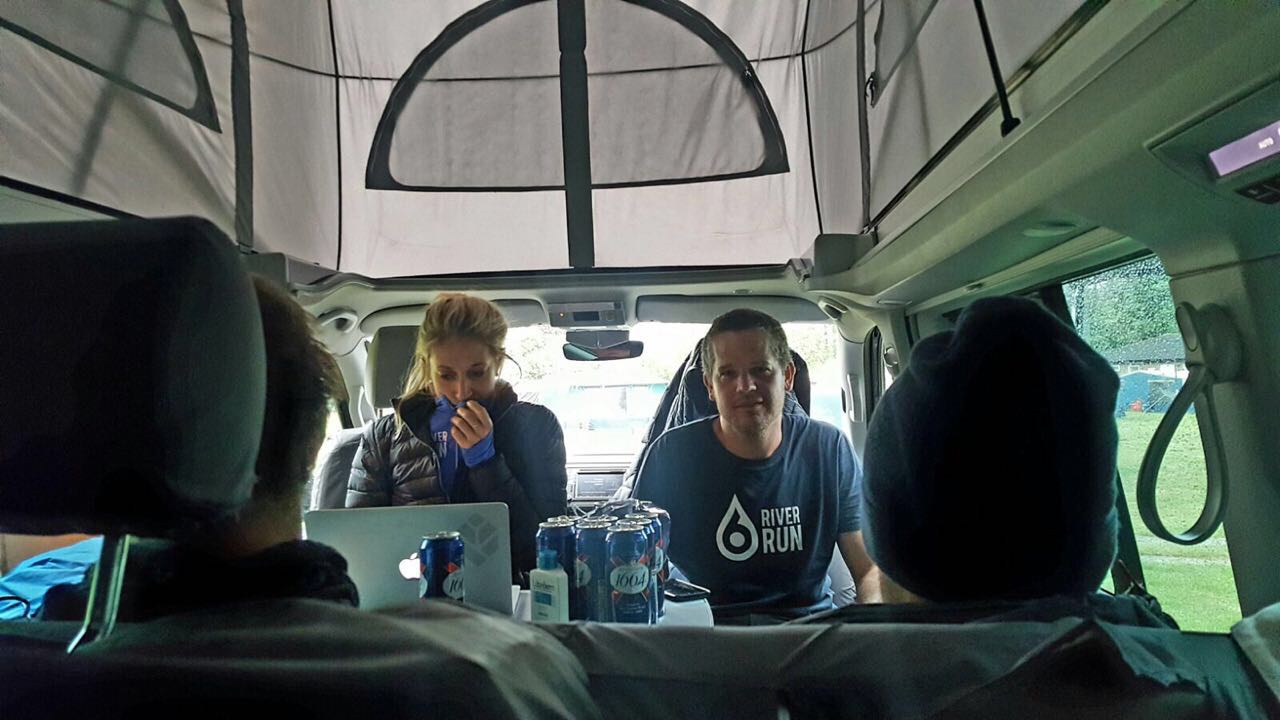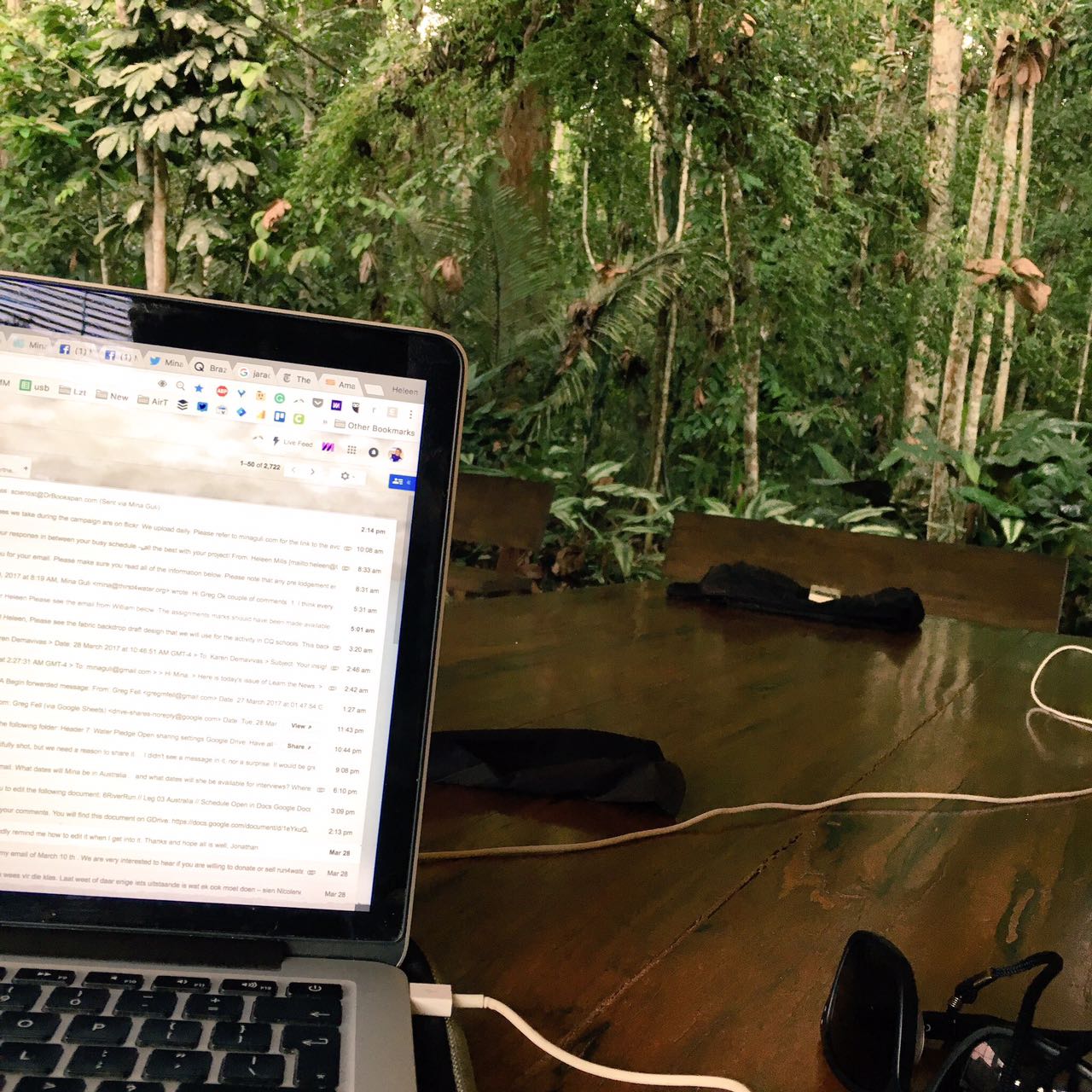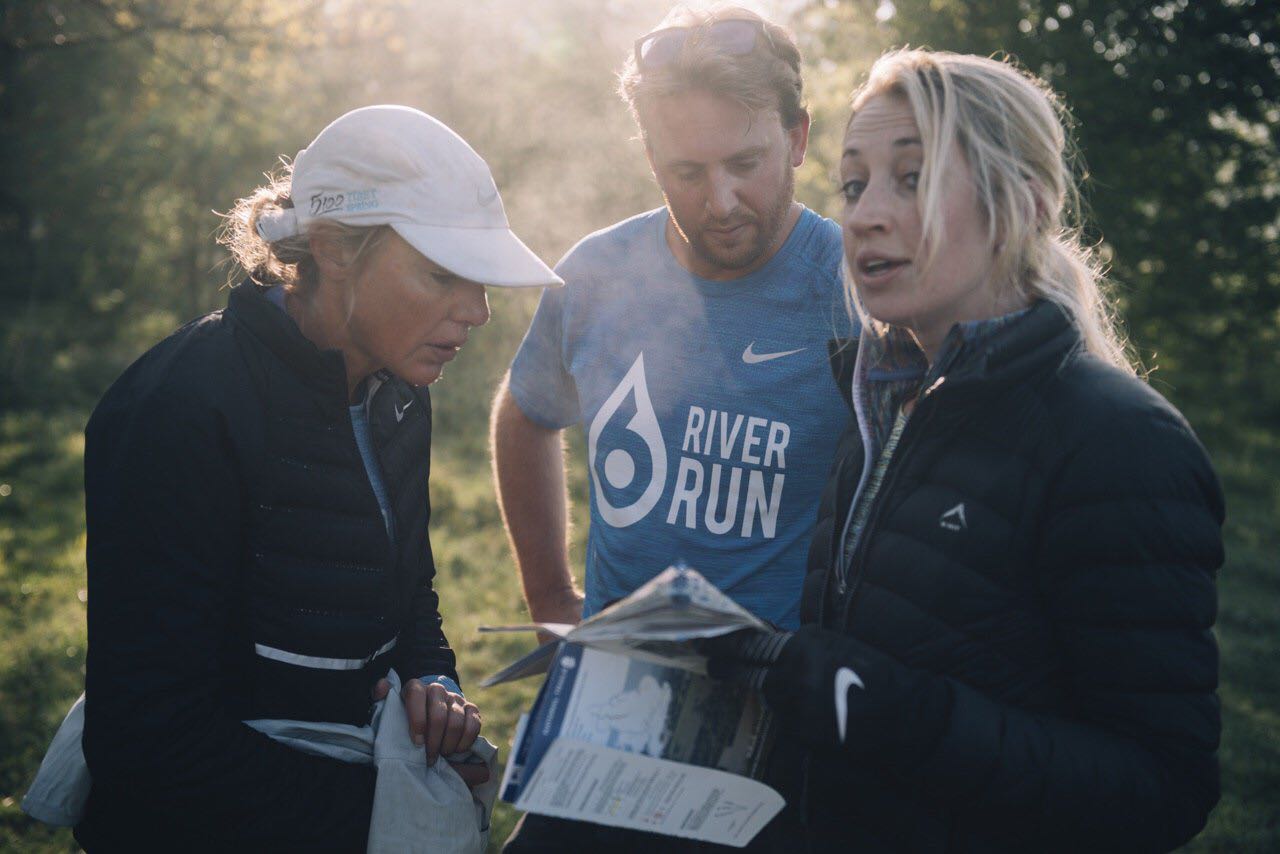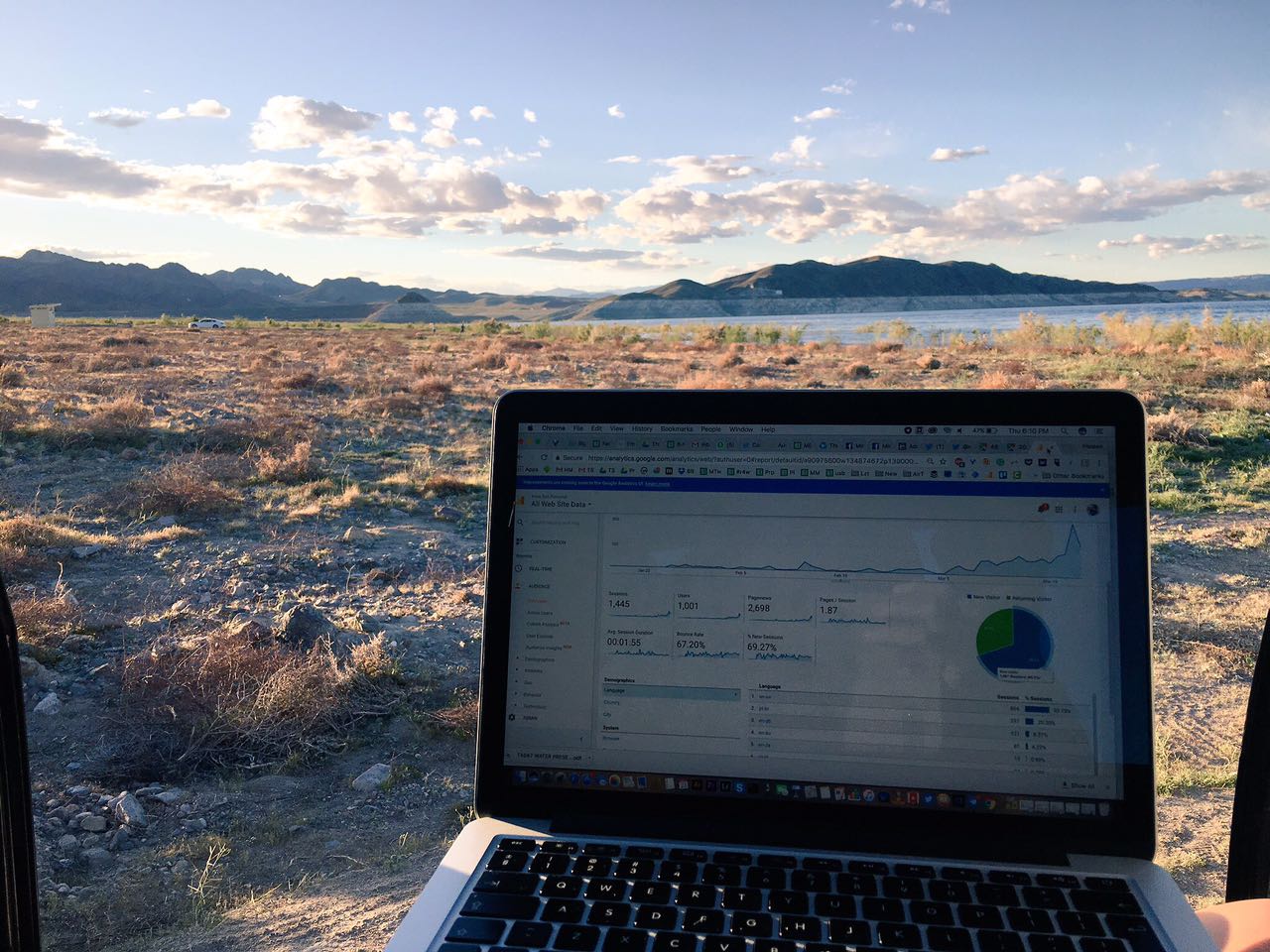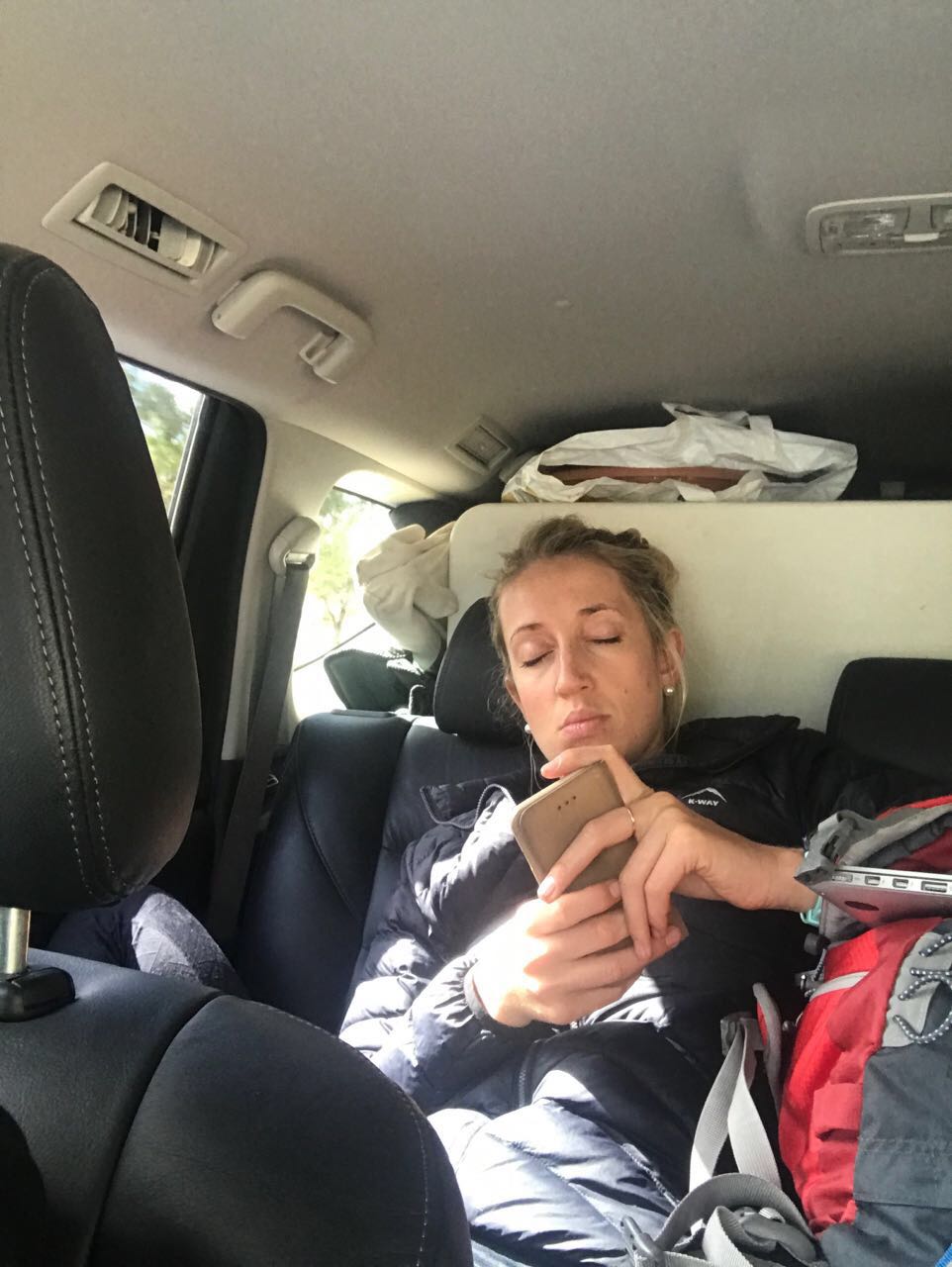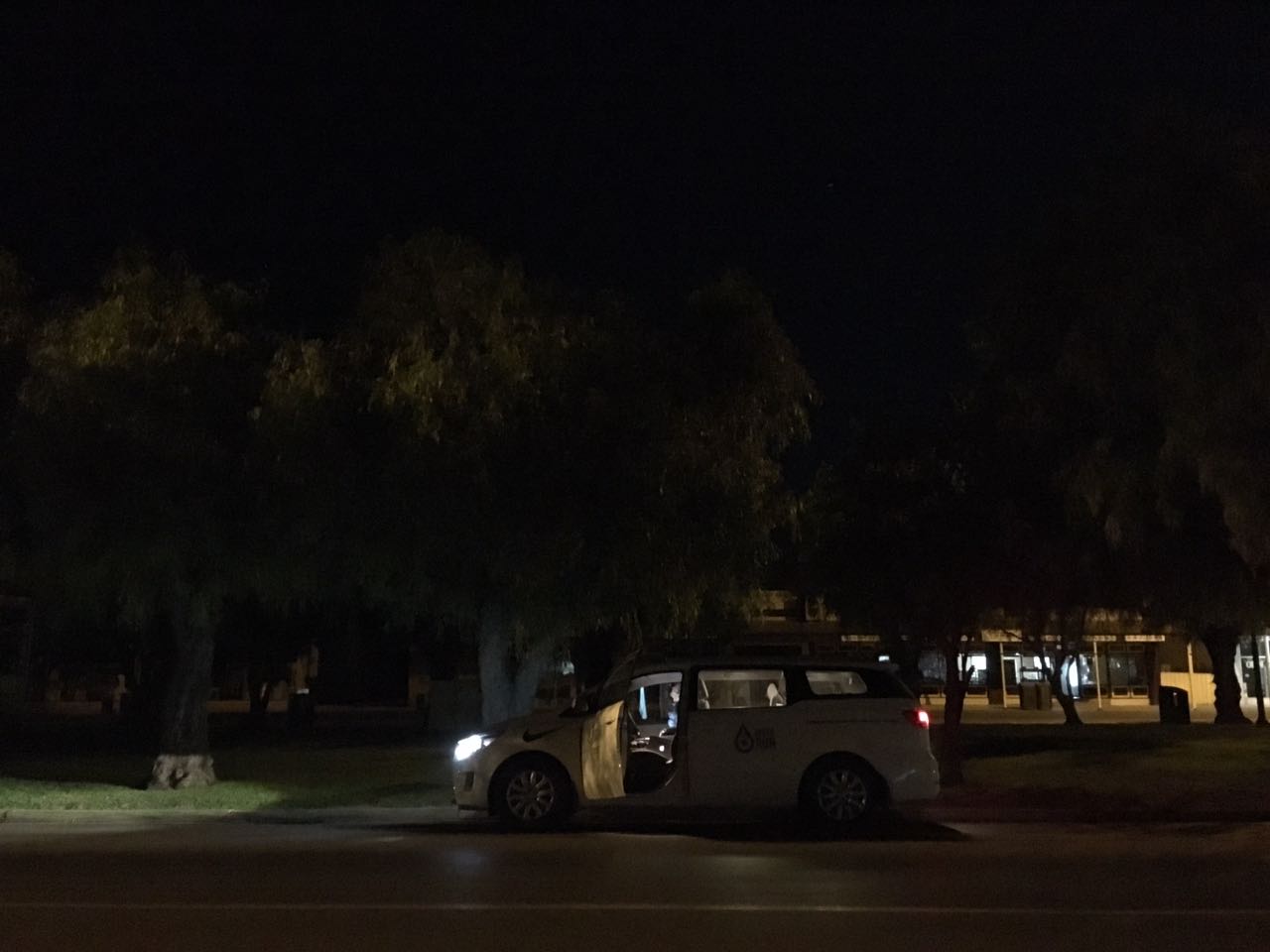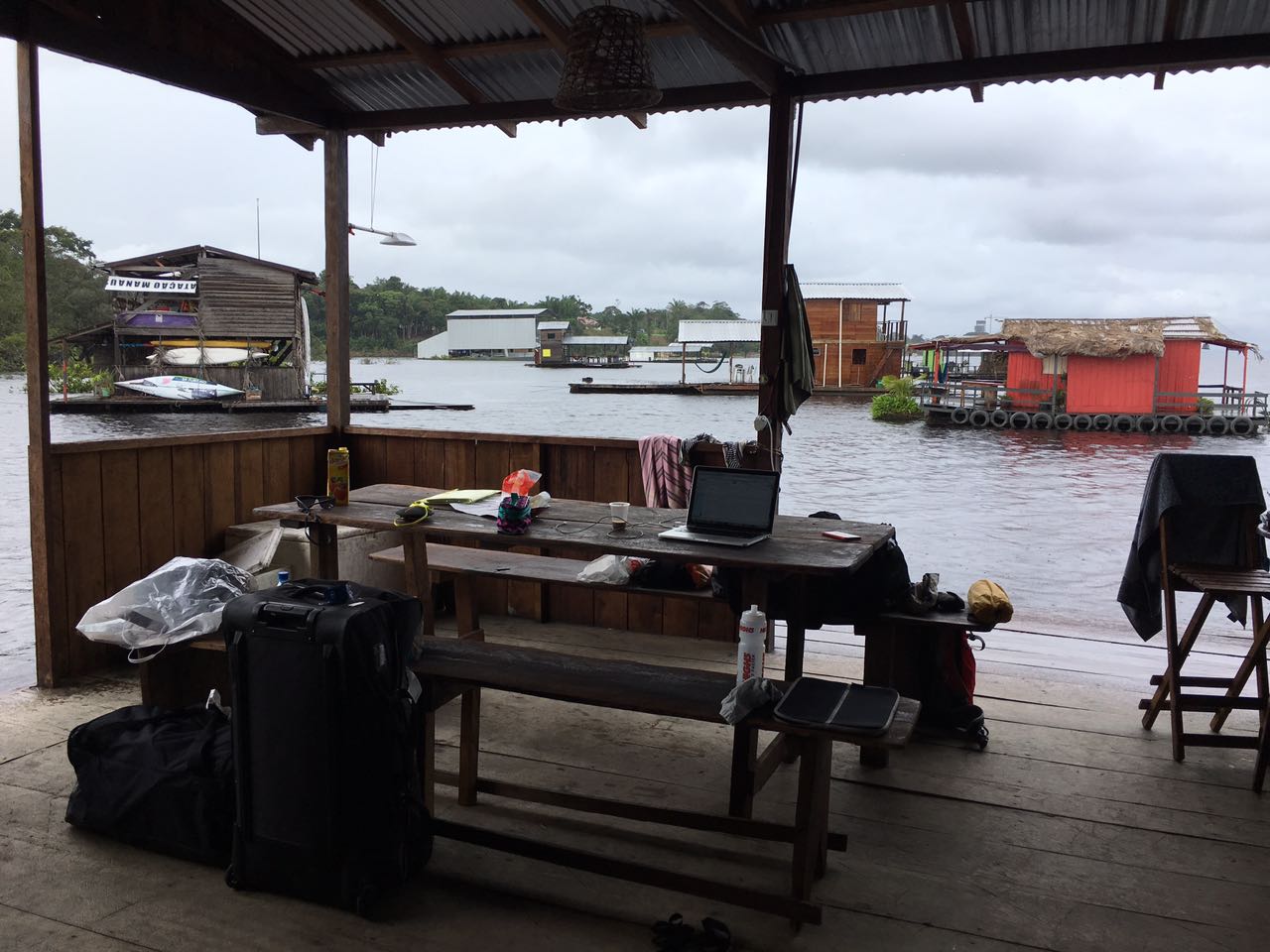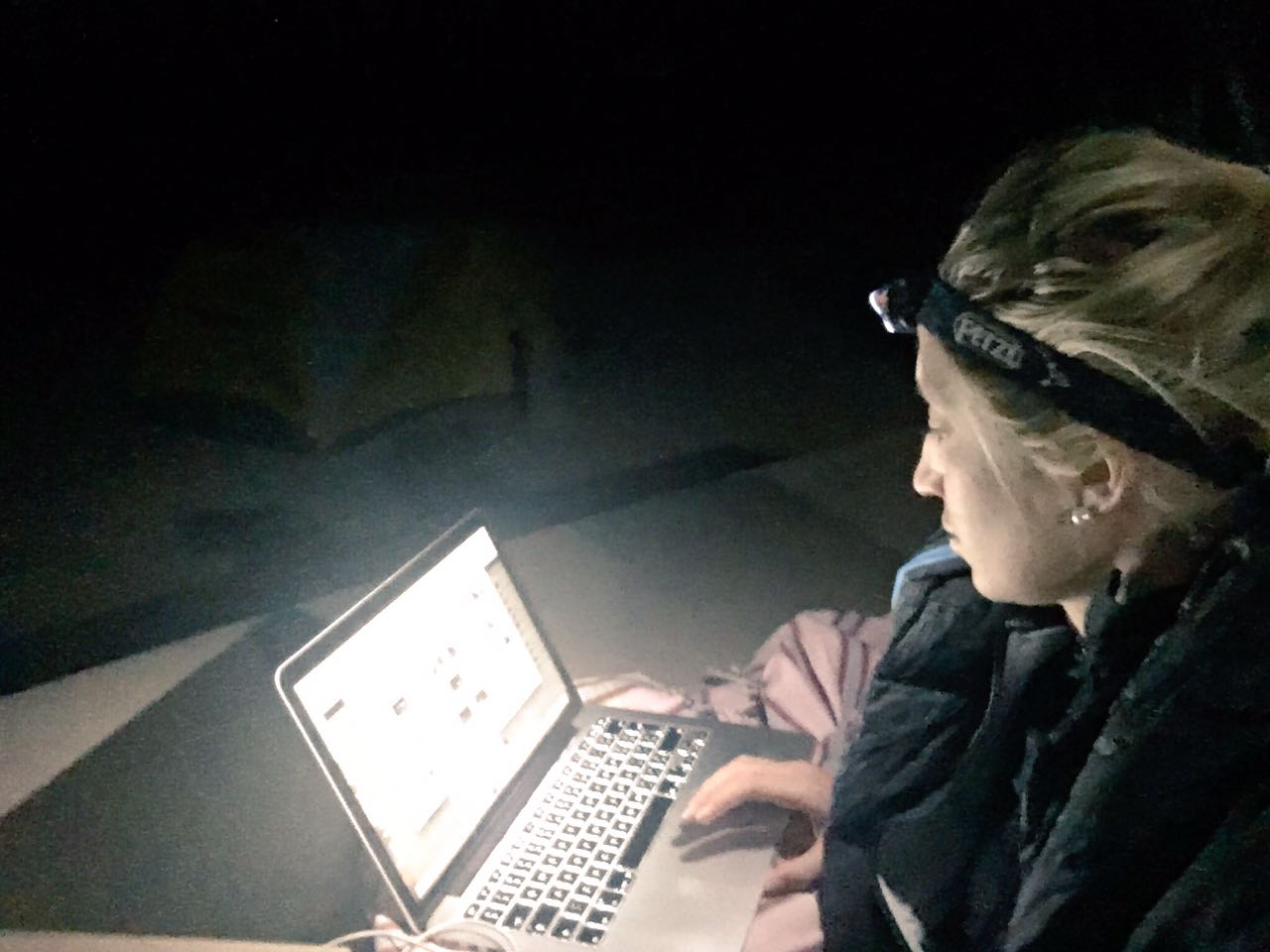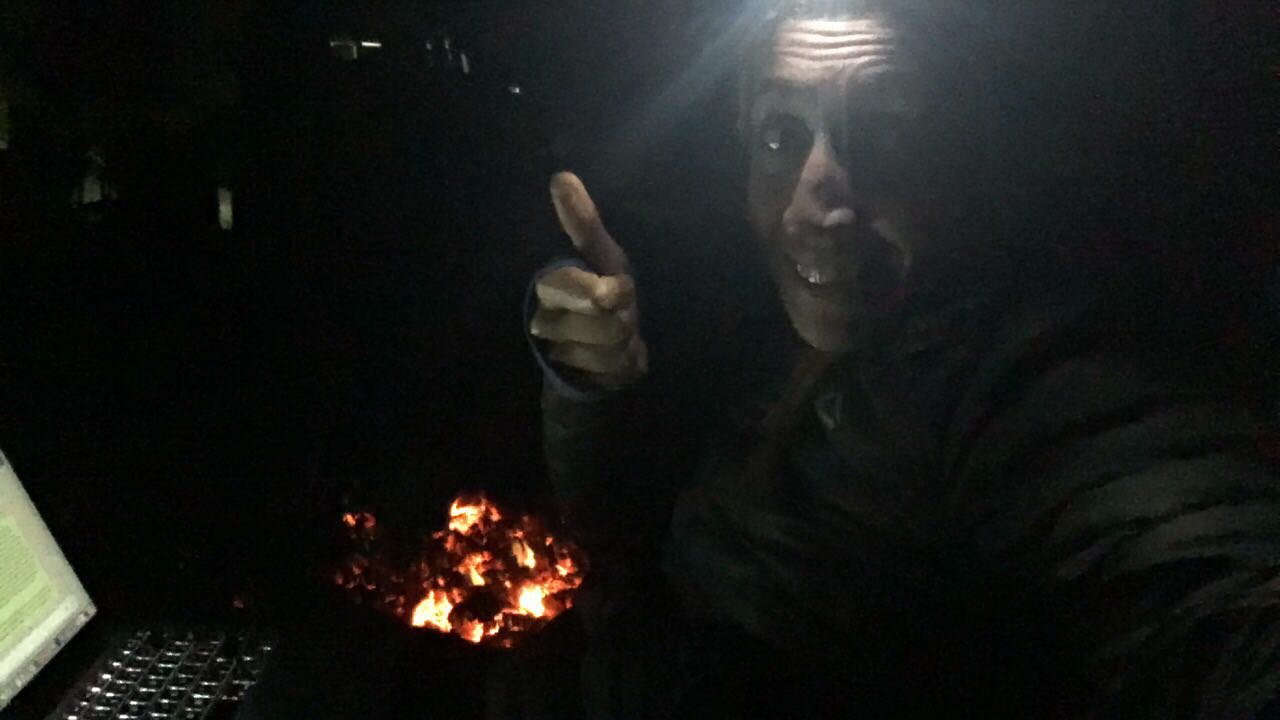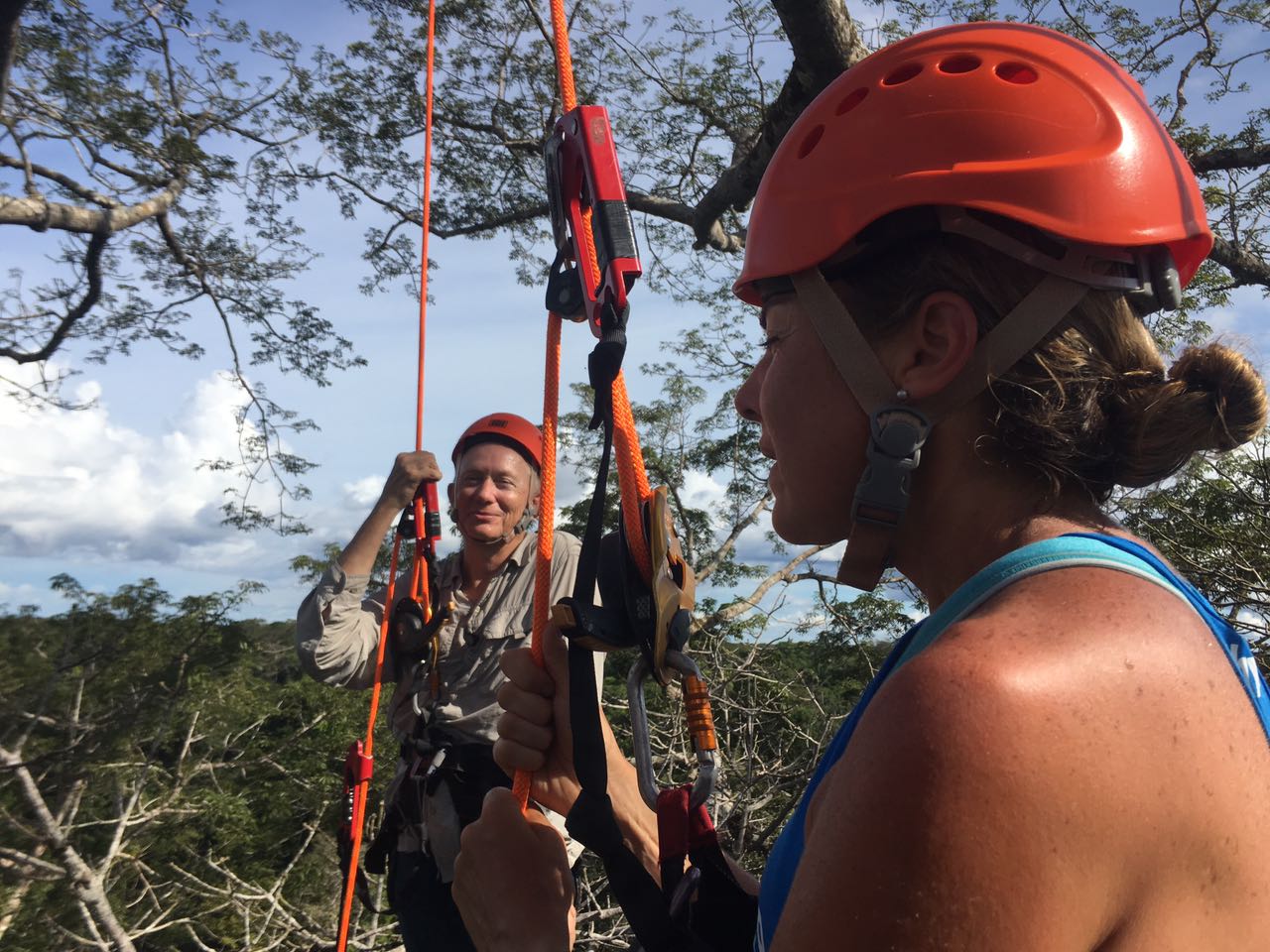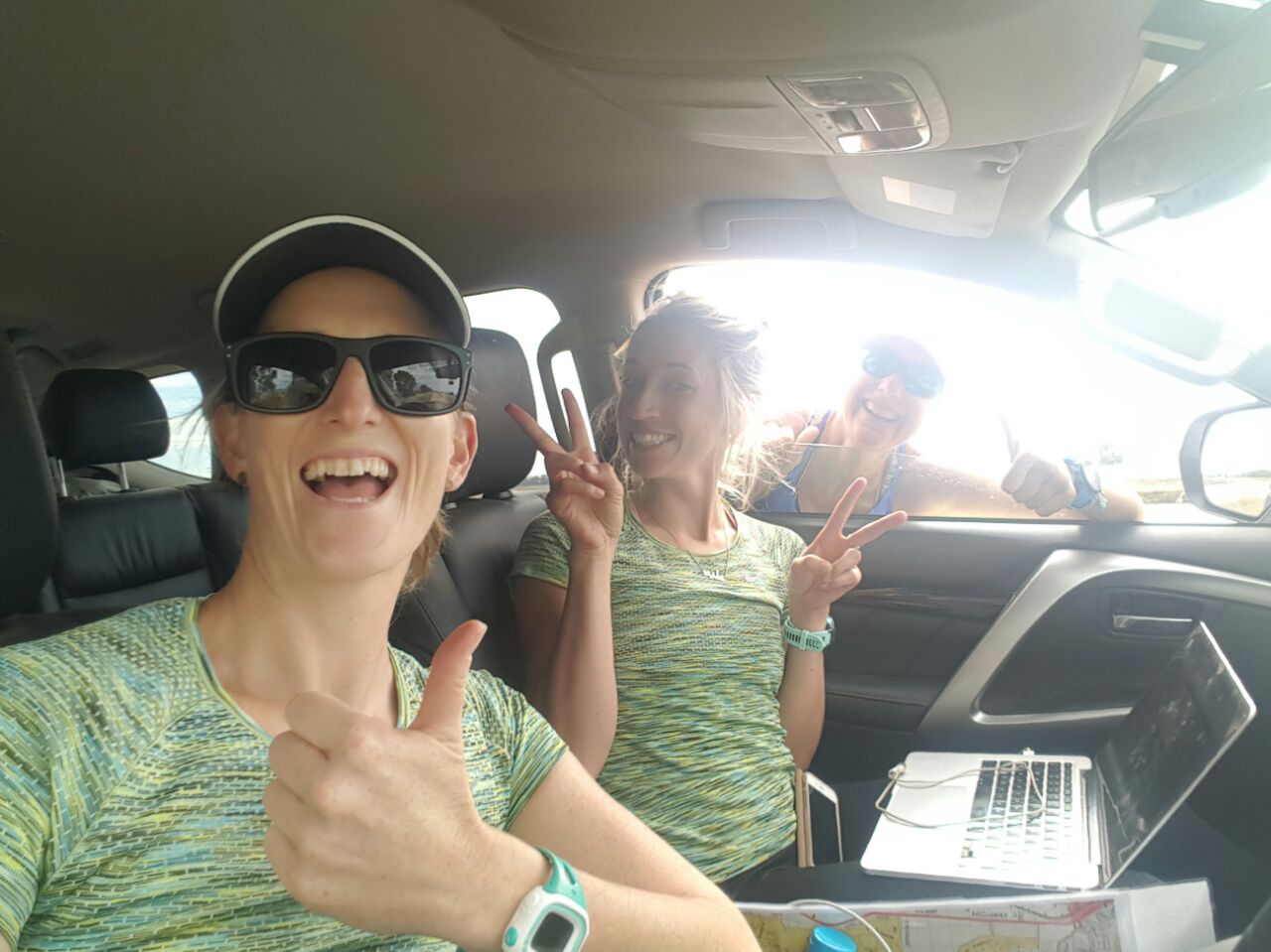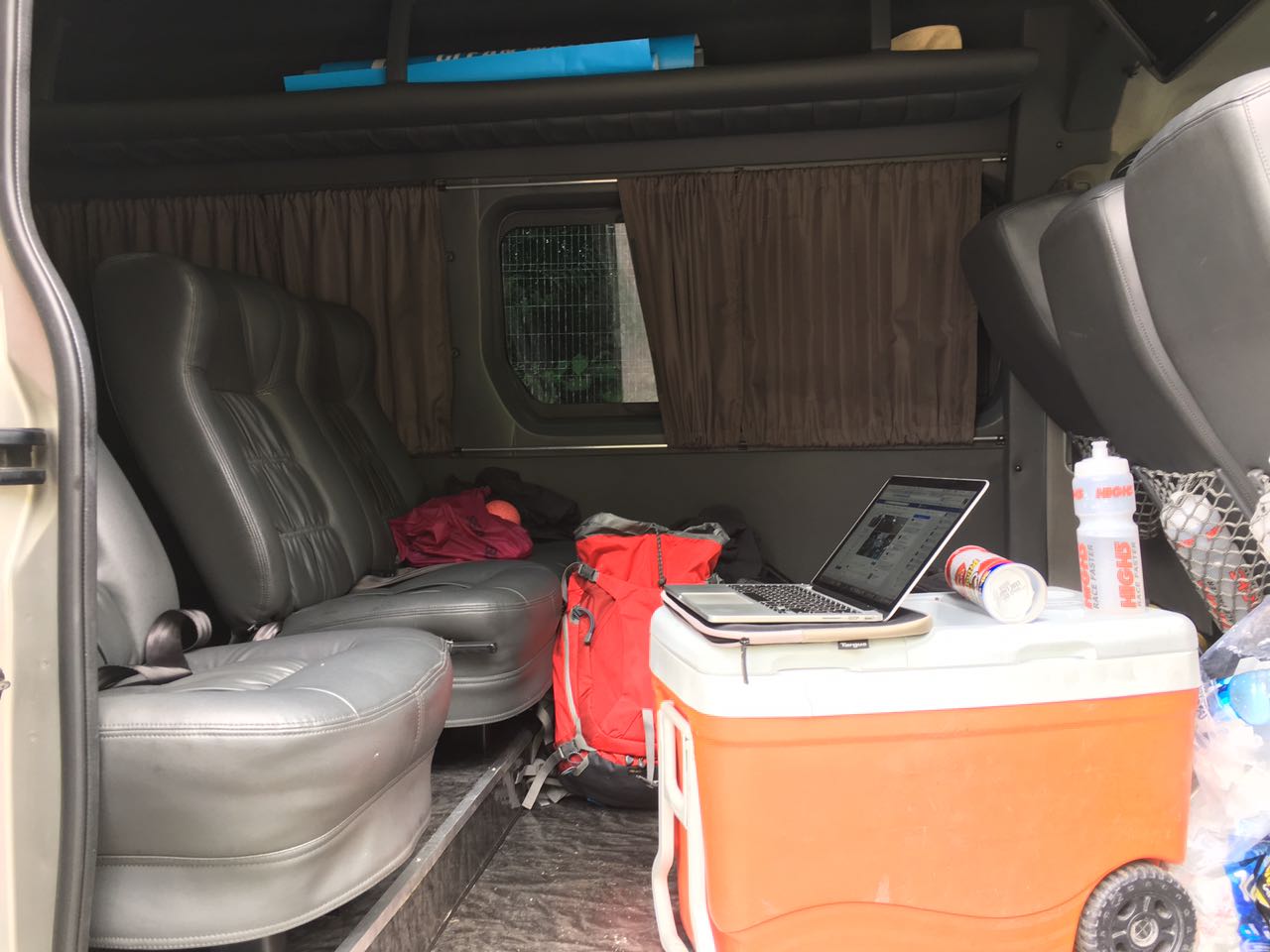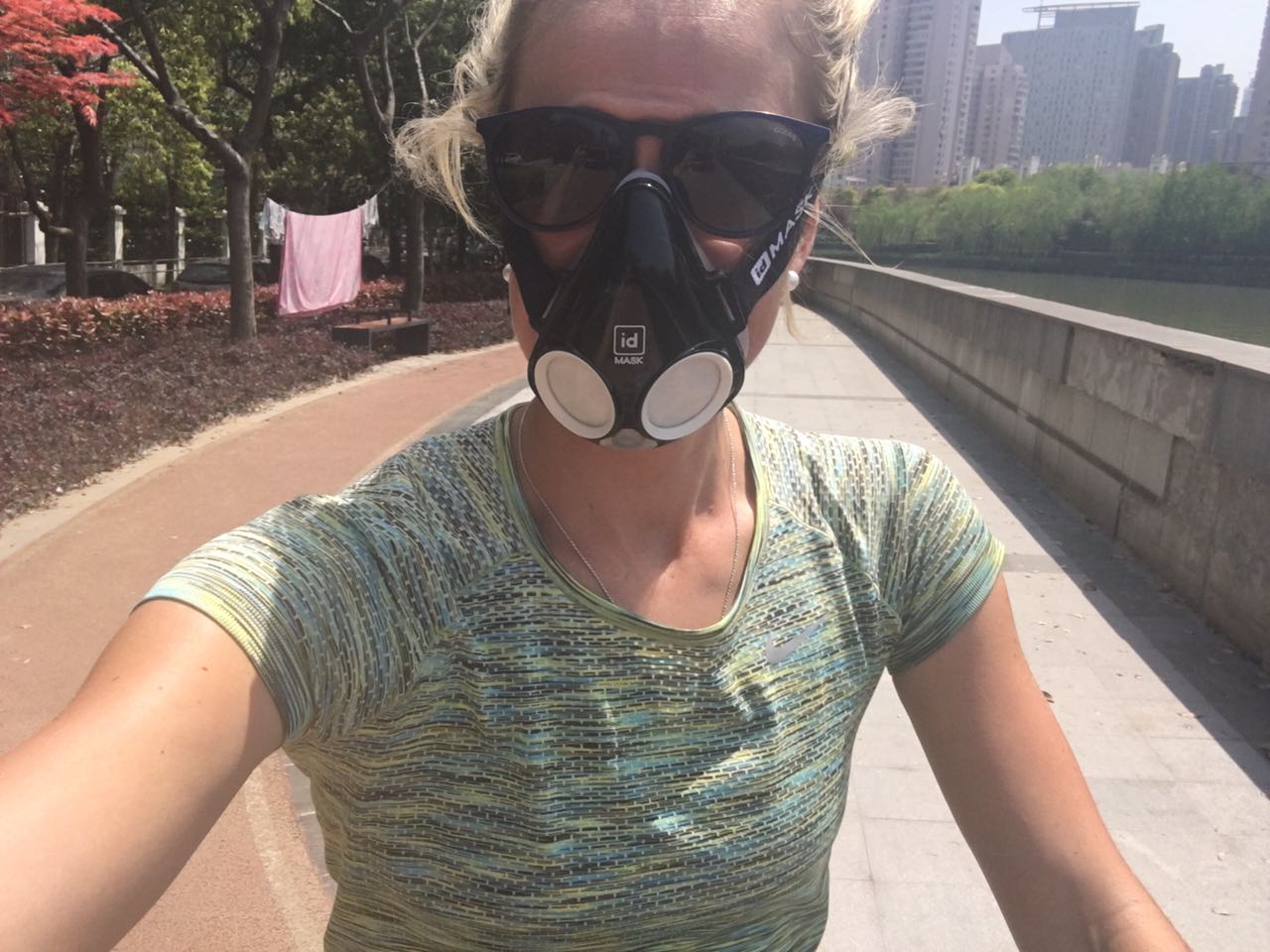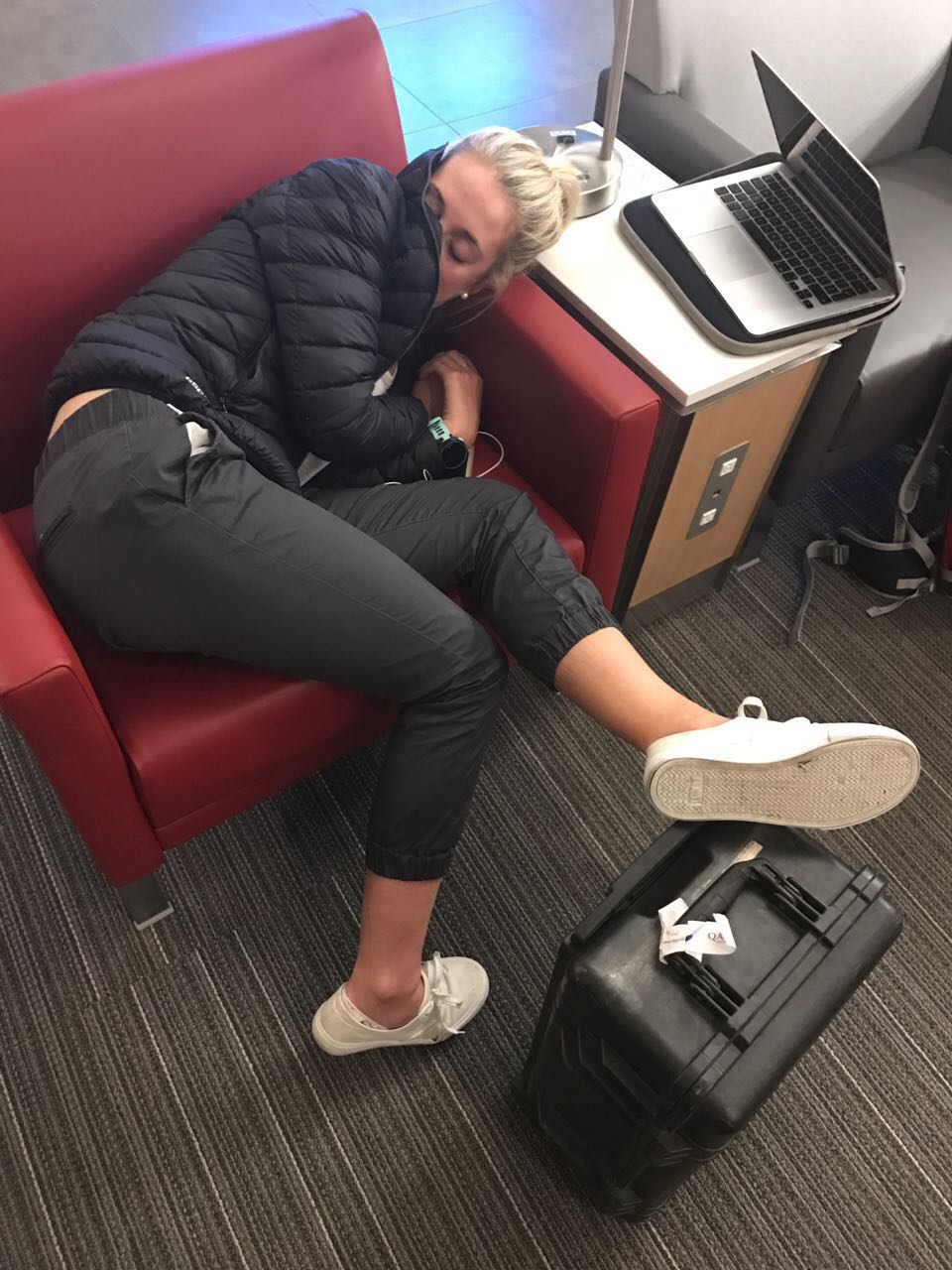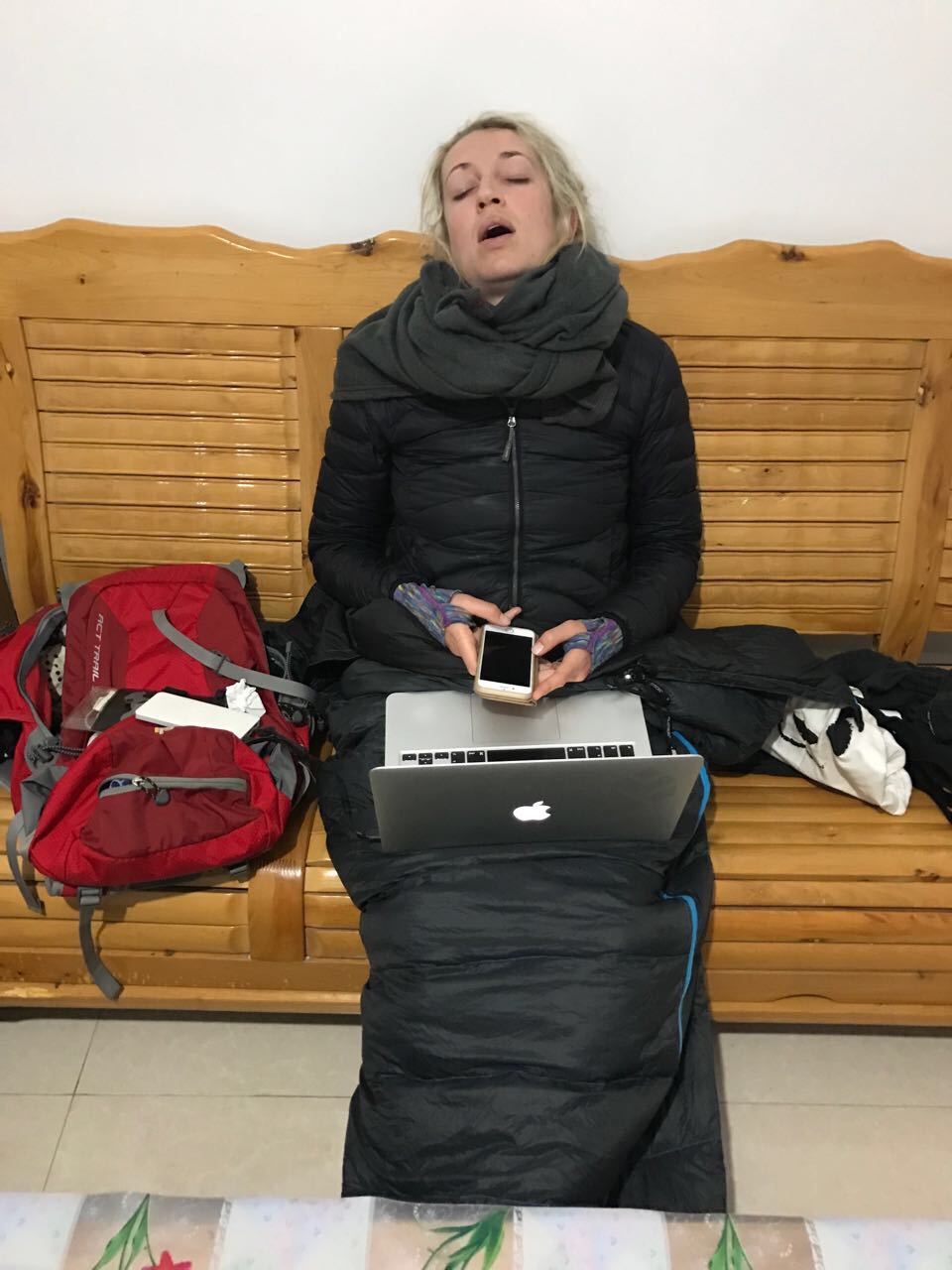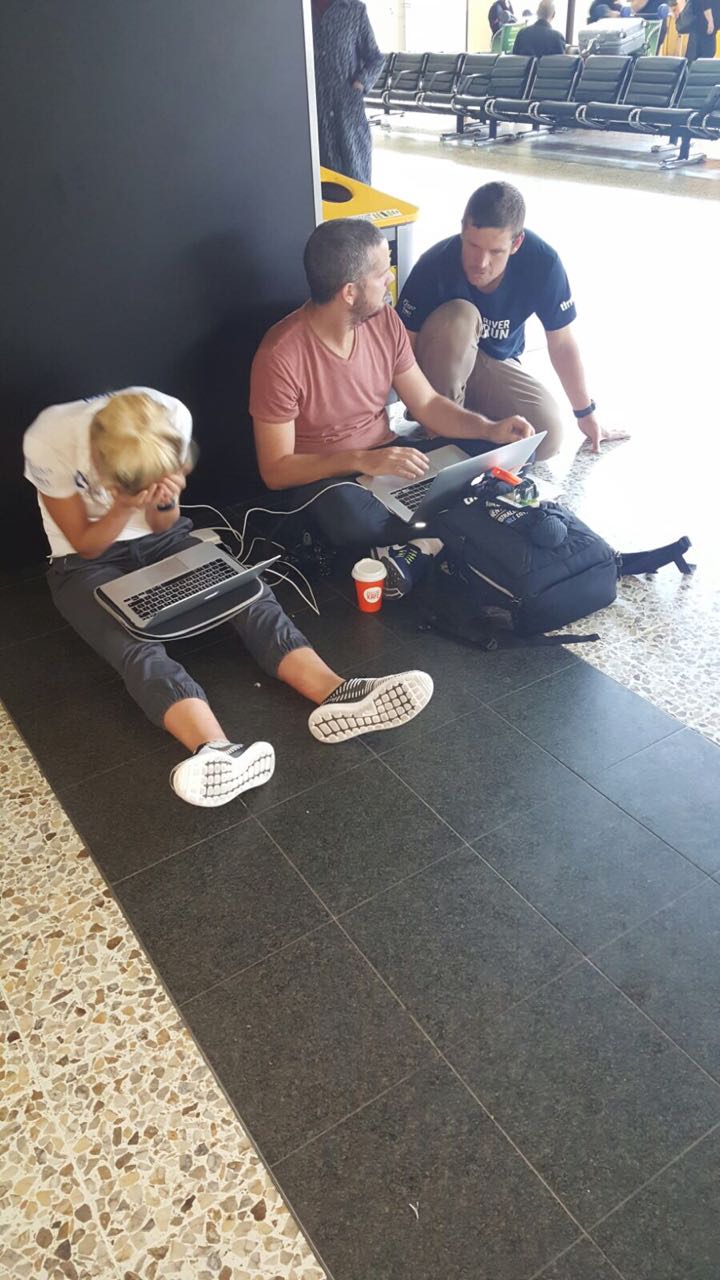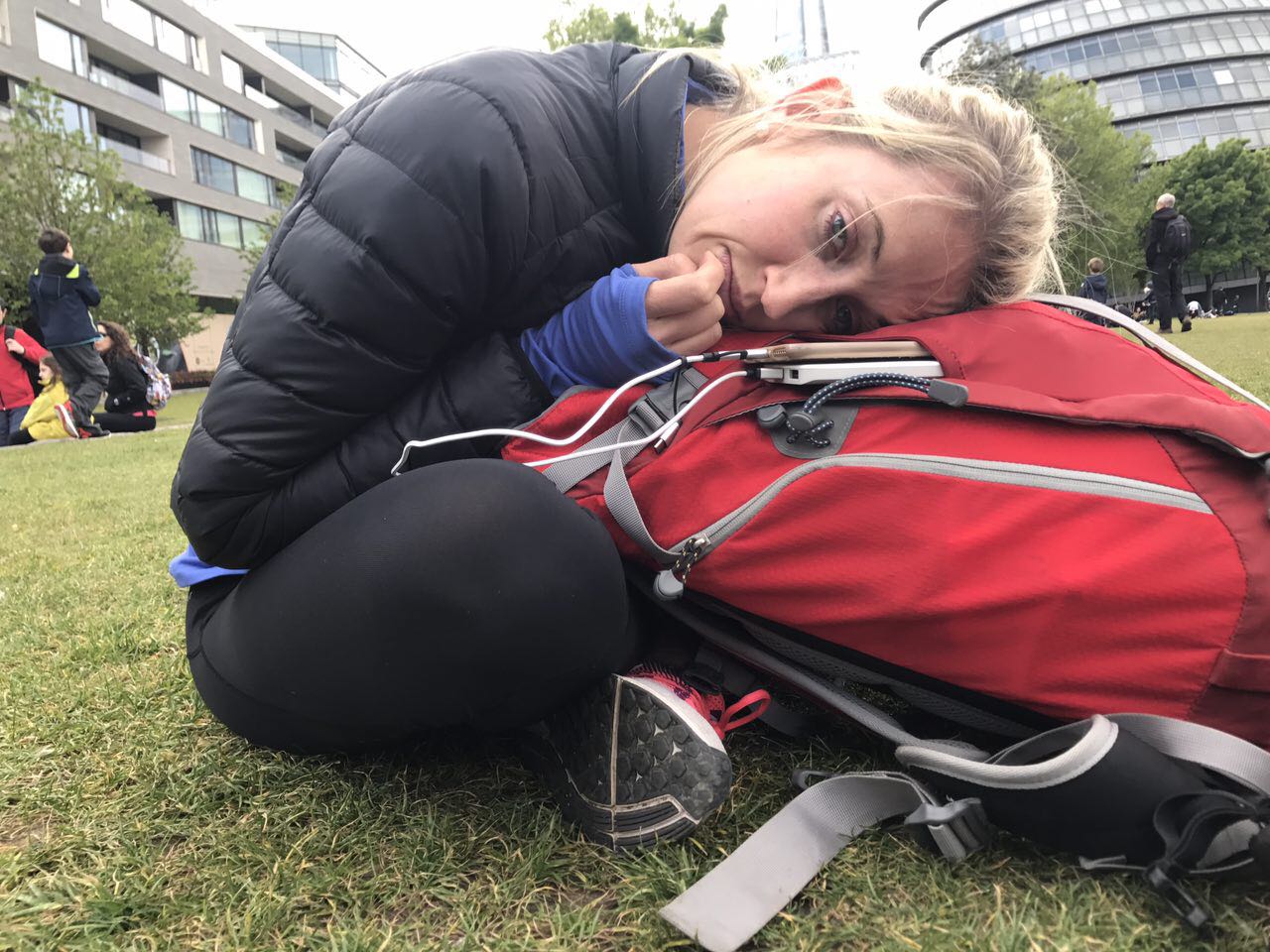Dave Duarte on How to Grow a Social Movement
In his talk Dave shares some of the methods that we at Treeshake have used to run campaigns that have reached over 1b people this year.
Last month, Treeshake founder Dave Duarte spoke at Think Future, a gathering of 233 participants from 20 countries who all work in the field of early childhood development.
In the video below Dave shares some of the methods that we at Treeshake have used to run campaigns with a combined reach of over 1 billion this year.
Video by Innovation Edge, Nov 2017
You can download the slides to follow along with the presentation here (3mb .pdf)
What is Social Currency? Why do you need it, and how you get more of it?
You know what's cool? Social Currency is cool. Social Currency is what you have when you participate in a hot topic and contribute valuable discussion points. It's what you have when you discover some juicy gossip before anyone else. Social currency is knowing something that others want to know. It's relevance that you can exchange for benefits ranging from money to esteem to friendship and more.
You know what's cool? Social Currency is cool. Social Currency is what you have when you participate in a hot topic and contribute valuable discussion points. It's what you have when you discover some juicy gossip before anyone else. Social currency is knowing something that others want to know. It's relevance that you can exchange for benefits ranging from money to esteem to friendship and more.
The paradox of social currency is that the more you share it, the more you have it. The trick is: it's time sensitive. You need to share your currency when people are most likely to find it interesting, and that is increasingly as it happens.
To see social currency in action, go to Twitter and have a look at the trending news topics. On every topic people are sharing memes and insights to the discussion. What do they get from it? Social Currency. But it doesn't spread evenly, here the Matthew Effect applies: "to those who have shall be given more"
Fashion is also a form of social currency. A look is hot for a small time, and if you get onto the trend early you benefit the most from it. Fashion through the lens of a sociologist is basically a conversation - it's showing that you're plugged into the stream of coolness and style.
According to Wikipedia, the concept of social currency derives from Pierre Bourdieu's social capital theory and relates to increasing one's sense of community, granting access to information and knowledge, helping to form one's identity, and providing status and recognition.
Social Currency is one of the primary reasons why content spreads online. Jonah Berger, who has spent a decade investigating what makes things go viral, says there are 6 principles of virality (STEPPS):
Social currency – we share what makes us look good.
Triggers – we share what’s at the top of our minds.
Emotion – we share what we care about.
Public – we imitate what we see people around us are doing.
Practical value – we share things that have value to others.
Stories – We share stories, not information.
How do you get more of it?
Gathering social currency is not just about sources of information, it is about your own skills and ability to make sense of the information you get and share it with panache. As with most things social, you need to develop momentum - developing habits and systems to feed you fresh insight, developing trusted sources, and growing your following as you interpret the info you get.
Some practical tips:
- participate in live events and conferences where thought-leaders and pioneers are speaking and attending.
- curate your news feeds for relevant insight
- participate in Twitter trending topics and see how much traction you can get with your commentary.
The Matthew Effect in Social Media
Famous for being famous. New followers because you have so many already. To those who have shall be given more. A social power law we can see playing out all day every day.
Why do seemingly inane videos like "Charlie Bit My Finger" have SO MANY views? It's the Matthew Effect in action.
Famous for being famous. New followers because you have so many already. To those who have shall be given more.
We call this the Matthew Effect. From the Bible:
For whoever has will be given more, and they will have an abundance. Whoever does not have, even what they have will be taken from them. — Matthew 25:29
Algorithms tend to favour already-popular content. And we already know how persuasive popularity is.
Via Wikipedia:
In the sociology of science, "Matthew effect" was a term coined by Robert K. Merton to describe how, among other things, eminent scientists will often get more credit than a comparatively unknown researcher, even if their work is similar; it also means that credit will usually be given to researchers who are already famous. For example, a prize will almost always be awarded to the most senior researcher involved in a project, even if all the work was done by a graduate student. This was later formulated by Stephen Stigler as Stigler's law of eponymy — "No scientific discovery is named after its original discoverer" — with Stigler explicitly naming Merton as the true discoverer, making his "law" an example of itself.
Merton furthermore argued that in the scientific community the Matthew effect reaches beyond simple reputation to influence the wider communication system, playing a part in social selection processes and resulting in a concentration of resources and talent. He gave as an example the disproportionate visibility given to articles from acknowledged authors, at the expense of equally valid or superior articles written by unknown authors. He also noted that the concentration of attention on eminent individuals can lead to an increase in their self-assurance, pushing them to perform research in important but risky problem areas.
So How Do You Beat the Matthew Effect
The Matthew Effect is not something you can beat, it's something you can use. Unfortunately it's true that it is harder to gain attention when you start. But it is also your best opportunity to be Surprising.
This is why we work with the Hot Content model to develop social momentum.
What "The Father of Modern Advertising" Can Teach Us About the Future of the Ad Agency Business
With so much changing about the advertising business, it is sometimes useful to go back to the origin of the industry to discover what has remained through all the changes With so much changing about the advertising business, it is useful to go back to the origin of the industry to discover what has remained through all the changes to discover the timeless value proposition of the industry.
With so much changing about the advertising business, it is useful to go back to the origin of the industry to discover what has remained through all the changes.
The most recent "Under the Influence" podcast featured Albert Lasker, "The most interesting adman in the world" (and early leader of what was to become FCB).
I loved this anecdote:
One day [Albert Lasker] was sitting in his offices, and a secretary handed him a note that said:
"I am downstairs in the saloon. I can tell you what advertising is. I know you don't know. If you wish to know what advertising is, send the word 'Yes' down with the bellboy. Signed – John E. Kennedy."
Lasker was intrigued and sent the word 'Yes' down to the saloon.
Kennedy was shown into Lasker's office.
He was a strapping 6-foot tall, ex-Mountie who used to write ads for the Hudson's Bay Company.
When Kennedy asked Lasker if he knew what advertising was, Lasker said, "I think so. It's news." [news is perhaps what we'd call storytelling]
Kennedy said no, news was just a technique.
The secret to advertising, Kennedy said, can be summed up in just three words:
"Salesmanship in print."
Those three words would change the advertising world forever…
"Salesmanship in print" was an epiphany to the advertising world in 1904.
What's today's equivalent of "salesmanship in print"? Perhaps considering the proliferation of channels we could call it "mediated salesmanship".
What is the timeless value proposition of the ad agency business?
Lasker's most successful campaigns seem to have something in common: a fresh perspective on an existing product, based on a consumer insight. For example:
- from selling oranges to linking "Drink an Orange" to the breakfast ritual
- from puffed wheat to "cereal shot from a gun"
- from birth control to "Planned Parenthood"
- Kleenex napkin (for wiping off make-up) to a "Disposable handkerchief"
This isn't storytelling per se, it is more about a creative perspective on the product. What we do is give consumers a different story about a product. And this enhances their experience of the product. This is perhaps a shift from story-telling (you tell the story), to story-making - where you offer a perspective, or do something, that gives people a new story to attach to a product or experience.
This is pretty much what advertising agencies still do. So what else hasn't changed?
- Results: no matter what, clients want results, usually sales.
- Persuasion: it needs to change behavior in some way. It needs to be convincing.
- Emotion: drives action & memorability
- Attention: clients want to be noticed.
- Relevance: the work must be relatable and relevant to the target audience
- Insight: great work is always based on an insight into human psychology of the target
- Efficiency: clients will always want to pay less for more, and faster
- Recognition: clients will always want their brand to be more recognised
- Timing: when people see the ad, and the timing of the campaign in relation to whatever else is happening in the world is always going to be important.
If we innovate in service of these values, we will thrive. Marketing today still requires creative perspectives and brilliant copywriting, but is also informed by user experience design, behavioral economics, smart targeting (e.g. Google Adwords and Programmatic), and machine learning (smart recommendations and adaptive offers).
What are the other timeless truths of advertising or your aspect of the business (whether production, or print, or traffic, or strategy...). Our world is changing fast! The practices change, the principles remain.
How To Build A Movement For Change That Lasts
The world needs an upgrade. Here’s help you’ll need to build a transformative powerhouse that will help make things better, and go the distance.
#Run4Water campaign Treeshake managed earlier in 2017 (Photo by Kelvin Trautman)
Environmental crises. Climate change. Poverty. Drug addiction. Homelessness. Unemployment. There are more than enough reasons to build a social movement for change. But how do you create a transformative powerhouse that does real good and lasts for the long term?
Five local and global change makers offer ten insights to show you how to change the world using the power of human networks.
“My name is Suzanne Smith and this is basically the house where I live. In this house we used to sell drugs. We used to keep a lot of guns in this house. We were part of the Americans Gang because we sold drugs for them.” A single parent of two boys from the Cape Flats, Smith always dreamed of becoming a lawyer, but this goal faded after she got involved in local gangs. “I didn’t have any direction in life,” Smith says, adding: “It just felt like my life is over.”
Smith’s life was transformed at Reconstructed Living Lab (RLabs), a movement for change-cum-social enterprise situated in Athlone on the Cape Flats. We asked the founder of RLabs, Marlon Parker, to share 10 principles that RLabs uses to help break the hold gangs and drugs have over some individuals:
1. Embrace Your Members
“When people come through our doors we accept them for who they are. Nothing else matters. We don’t see where the person is at, and judge that. We look at where the person is going,” says Parker. Acceptance is powerful, and at RLabs this sense of belonging not only helps individuals to change, but helps them to break away from violent gangs.
2. Don’t Just Inspire. Enable
It isn’t enough to inspire — a movement for change must be transformative. “When you want change you must create environments for people to take the next step, to go where their aspiration takes them,” Parker says. “It is not just about getting people fired up, it is about using that fire to create forward movement in a person’s life.”
Research shows that it is important to appreciate that a movement for social change is a human network — what Yale’s revered sociologist and physician, Nicholas Christakis, describes as “living, breathing entities that reproduce, and that have a kind of memory.” Christakis, the author of Connected: The Surprising Power of Our Social Networks and How They Shape Our Lives [with James Fowler], says human networks are “very difficult to understand”. In an interview with Wired Magazine he reveals the rules he’s discerned about how human networks work:
Rule One: “We shape our networks.” Christakis says that we literally create the networks around us.
Rule Two: “Where you are located in the network has significant implications for the experience you have in life,” he says, explaining that as humans we’re affected by what is going on around us.
Rule Three: Christakis says our friends affect us.
Rule Four: And this is where it gets interesting. Christakis has found that in human networks there’s a domino effect or what he sometimes refers to as “social contagion”. Not only do our friends affect us, “but our friends’ friends’ friends affect us” he says, adding: “Things ripple through the network”.
Rule Five: “The network has a life of its own,” says Christakis in Wired.
“When you start focusing on Nicholas Christakis’ ground breaking work on human networks you start to get an appreciation about just how careful one has to be when choosing the people and practices you employ to create a successful movement for change,” says Dave Duarte, CEO of Treeshake, educator and social entrepreneur.
3. Individuals Influence Each Other, And The Network
“What Christakis’ research reveals is surprising. Who you are friends with and spend time with will even influence aspects of yourself that you may think of as being your individual identity,” the CEO of Treeshake says. “Our networks, and our places in them, can affect our happiness and could even influence our weight. The epiphany is that who you spend time with helps shape who and what you are, and will influence your human network’s outcomes.”
4. Powered By Purpose
Given the complexities of human networks, Duarte says the best way to start building one is to keep a big picture in mind. “Go for small wins in the beginning, and remember that relationships are built one interaction at a time. But before you set out, the very first question you’ve got to ask yourself is: “What is my purpose?” Don’t get distracted by technology or social media tools. Distill your ‘why’, your reason and understand your purpose. This will take you far in the long run.”
5. Face To Face Beats Facebook
“At the start, meeting physically is vastly superior to meeting virtually,” says Duarte. “I don’t think there is anything we have that matches what happens when people meet in person. There is so much more information that is communicated in a physical context,” he explains. “More information means you can create deeper understanding and trust,” Duarte says.
Real world rituals and routines are a ready part of Gina Flash’s social change toolbox. Flash is the founder of a movement for social change with reach across South Africa called Mensch. A human network that mobilises positive social activism, Mensch has flourished since it was founded in 2014.
6. Create Relevance in People’s Lives.
“Creating a movement for change that thrives means understanding what’s important to the people in your movement. It is a conversation, so at Mensch we listen as well as talk,” says Flash. What’s been critical to the Jewish social change organisation Flash runs is listening deeply, doing regular benchmarks and surveying people to find out where they’re at and what they need. The founder of Mensch adds: “Don’t forget to be cognitively kind. People are busy so you don’t want to cause them more work — you want to add more value.”
7. Great Movements Are Multi-Generational
Both Flash and Parker embrace diversity of age. While gang violence is predominantly a youth problem, Parker actively seeks older members of the Cape Flats community to be part of his programme. “Our organisation is built on a family model, because the people who come to us more often than not come from broken homes. Older folk know a lot. In the Cape Flats they’ve seen the destructive cycles and this becomes the baseline we build on.” At Mensch, Flash says older people are part of her network because they can offer profound insights and have the experience that makes them perfect mentors.
8. Deep Connections Create Change
“We teach people how to network, so they get the best out of our events. We use different tactics like speed networking, to get people to know each other and trust each other,” says Flash. The Mensch Founder says this opens people to opportunities. “The more people understand who is in the network, the more people understand the reasons to connect. The more people connect deeply the more they can help each other and enable work that creates social change,” Flash says.
In Grahamstown, Admire Mare is a Global Excellence in Stature Postdoctoral Research Fellow at Rhodes School of Journalism and Media Studies, who reveals a key insight about building robust social movements for change.
9. Real World Builds Capacity
In his research Admire distinguishes between two types of movements. “What we see with social media is that we have social media enhanced movements that exist offline, but which champion their causes online,” Mare explains that these include the likes of the #FeesMustFall movements. “Then there are social media movements that start online and try to go offline. Some of these movements make it, others don’t,” he says.
“Social movements that start offline are good at capacity building, and creating trust between members, and because of this they have longevity. Online what we see is that people support movements, but the reason why they do this isn’t always apparent and these audiences can be fickle.” Mare advises that if you want to build a sustainable movement for change it is better to start offline and work to build capacity and trust. “It is very difficult to measure commitment online or to discern whether support is click activism. I am not saying that digital movements aren’t important, you just need to be aware that people aren’t always as committed online as they are when they turn up in real spaces.”
10. The Value Of Values
Never underestimate the power of organising with people who share the same principles. Says Duarte: “Shared values means that you can shortcut later conflicts about moral issues, because if you share the same principles with the people in your group you’ll have a basic moral compass in place. Remember that there’s a big difference between identity and values, so even if you are in a group that’s gathered around a similar identity, the values of the people in the group won’t necessarily be aligned.”
Read more:
- Nicholas Christakis: Does This Social Network Make Me Look Fat? In Wired
- What really motivates people to rally around a cause in Fast Company
- Koketso Moeti on creating a platform to fight injustice at Destiny Magazine
WATCH:
- Derek Sivers - How To Start A Movement
- Nicholas Christakis - The hidden influence of social networks
- Zeynep Tufekci - The fickleness of social media groups
Resources:
- Transforming Organisations by Robert Gass [Pdf download]
- Creating Grassroots Movements for Change: A Field Manual [Pdf download]
- Building a social movement for change - The Beek Centre for Social Impact and Innovation
Follow our interviewees on Twitter
Other Articles
Treeshake is an education, consulting and communications company that connects organisations to change. All our articles are made available for republication, usually under a Creative Commons [CC-BY 4.0] license. You’re welcome to republish this article, but please attribute Treeshake and link back to www.treeshake.com/.
Which News Media Can You Trust To Tell The Truth?
We have arrived in the post truth economy where the news media is facing a crisis of confidence. We spoke with 13 leading thinkers in the media space about rebuilding trust in the media.
Rudy Nadler-Nir is not the kind of person you’d expect to share a fake news story on Facebook. An anthro-geek, Nadler-Nir’s been in the digital sector since it was born, and his resume boasts names like Ogilvy. But late one night the social media reputation man saw a news item about actor Eli Wallach dying. A fan of the method actor who starred in ‘The Good, The Bad and The Ugly, Nadler-Nir clicked share.
“People started to respond emotionally. We shared memories of his movies, and of his place in our Cowboy-worshiping childhood,” he relates. But Wallach had been dead for quite some time. “Someone on my timeline chirped in: “he died in 2014”. It felt like being hit with a bucket of cold water.”
“a fake news story wiped out $4billion of a company’s market value”
Fortunately the only harm done was to Nadler-Nir’s ego. But in the post-truth economy, there’s a lot more at play, like national elections or the safety of foreign nationals. If you shared the mendacious story ‘Pope Francis Shocks World, Endorses Donald Trump for President’, as close on a million people did, you helped to get Trump elected. Closer to home, the sharing of fake news has caused outbreaks of xenophobic violence in South Africa. Why just a few days ago a fake news story wiped out $4 billion of a cryptocurrency company’s market value.
But, how did we get here?
We have arrived in the post truth economy where the news media is facing a crisis of confidence. “Trust in media has been eroded by two main factors. Until the arrival of the internet, traditional media was the only way to reach large audiences. The only voice was a trusted voice. Now media users have other authoritative sources of information, such as experts who write their own blog pieces,” says Anim van Wyk, Editor of Africa Check, that rightly declares on its site: “For democracy to function, public figures need to be held to account for what they say. The claims they make need to be checked, openly and impartially.” Africa Check is an independent, non-partisan organisation that does just this.
“The second reason is also related to the internet,” van Wyk adds. “Newspapers suffered a huge income blow with the arrival of online advertising. The result is a huge cutback in newsrooms and an even greater focus on content that will sell/gain clicks. With fewer people doing more, mistakes are bound to slip in more often.”
“news is no longer perceived as the truth”
Azad Essa, co-founder of @thedailyvox and a journalist at Al Jazeera agrees. “The obsessive focus on profits has seen accuracy relegated to second place,” he says, adding that the way people perceive news brands has changed. News is no longer perceived as ‘the truth’. “Today people think of the news as just another product, like a cup of coffee or slice of cake. It is not delineated as something different that has a moral compass.”
What exactly do South Africans think of the local news media?
Twitter offers insight. Here are some of the less-than-favourable views:
What does the research say?
But revelations of paid and fake Twitter accounts means accurate crowd insights from the social networking service proves tricky, so let’s turn to research. In 2014 FutureFact did research on whether journalists were trusted more than politicians. The results? “76% have confidence in our journalists,” the researchers wrote at futurefact.co.za “This is not unequivocal as only 23% have complete confidence and 53% some confidence.”
Compare this to the US, where trust in the news media is worryingly low. Gallup reports that Americans' trust and confidence in the mass media “to report the news fully, accurately and fairly” has dropped to its lowest level since the research company started polling. 32% of Americans say they have a great deal or fair amount of trust in the media, down eight percent from last year.
So which news media can you trust to tell the truth? That’s something you’re going to have to determine for yourself, using a healthy dose of skepticism, burgeoning curiosity and the will not to take anything at face value. To help you on your way, study Africa Check’s guide on how to stop falling for fake news. And read the advice from SA's media experts.
advice from some of SA’s best news minds & media pundits.
ALASTAIR OTTER (@alastairotter)
Alastair Otter, a partner in the Media Hack Collective : “When you see a story that sounds incredible, look for a second or third source to determine if it is true. Visit the sites of known reliable publishers and check if they are also covering the news. If they aren’t then be wary. Not finding a second source for a news story is not an absolute indicator that the story is false, but more of a caution.”
Azad Essa (@azadessa)
Azad Essa, Al Jazeera journalist and co-founder of The Daily Vox: “Fake news has always been with us. The world’s always been filled with con men. Stop pretending that people are going to spoon feed the truth to you. You have to take charge. The internet gives you the space, information and tools you need to really take charge. You have to wise up and follow the money.”
Charl Blignaut (@sa_poptart)
Charl Blignaut, writer, journalist and pop culture critic at City Press: “The antidote is a return to old school journalism, following and reading established journalists who operate under the press code, who refuse bribes, who are not friends of click baiting.”
Gayle Edmunds (@GayleMahala)
Gayle Edmunds, managing editor of City Press: “If everyone read everything with even just a pinch of skepticism it would be a giant leap in putting a stop to the rapid spread of lies on social media.”
Glenda Daniels
Glenda Daniels, Senior Lecturer Media Studies, Wits: “Pause and take a moment before pressing the retweet or repost button if the news is sensational or sounds like it could be false. Don’t become part of the vicious cycle.”
Jane Duncan (@Duncanjane)
Jane Duncan, Professor of Journalism, University of Johannesburg: "Sweatshops don’t encourage ethical journalism. We must give journalism the space to practice ethical journalism, which relates to fair labour rights. So much is produced by freelancers who are badly paid, if they are paid at all. Fair labour rights create an environment where journalists can adhere to ethical standards.
A happy newsroom can lead to a newsroom where journalists invest more time, effort an energy into stories. Journalism then becomes a vocation, rather than just something they do to put food on the table. We need to create environments where journalists will stay longer and give more. We are not having a discussion about what media organisations need to do to create ethical environments for good journalism. We need to do this."
Kanthan Pillay (@KanthanPillay)
Kanthan Pillay, Group Head: Online for E Media Holdings and former CEO of Yfm: "Toss out the adjectives. Journalism is about fact, and adjectives are about opinion. So when you see the word “controversial”, read no further. It’s controversial only because the journalist is lazy. If you strip off the adjectives you see the facts, and you can start ascertaining what the truth is. Obviously ensure that the news stories you consume have a multiplicity of credible sources."
Mahlatse Gallens (@hlatseentle)
Mahlatse Gallens, political editor of News24: "Online many fake news peddlers often try brand themselves similarly to established news organisations. For instance they would use the colours of News24 but change the name a little. At News24 we advise people to double check the sites they go to. On big stories - like the recent fake story of Desmond Tutu passing - remember that if other media houses don't cover the story this should act as a warning bell. In general South Africans critique everything they read. This is very welcome. Use this attitude, but double check the sources of all information. Go and find the original documentation or sources of stories. For instance go and read the Gupta emails yourself. Don't make click baiters and fake news peddlers rich. Remember using social comes with responsibility and you don't want to run foul of the law when it comes to sharing information. Take responsibility for what you share."
Rudy Nadler-Nir (@RudyN)
Rudy Nadler-Nir, MD at DIGIACS, Reputation Observation and Analysis Specialists: “As a rule of thumb, I differentiate between “reliable media providers” (BBC, Reuters, AP, Washington Post, The Guardian, Haaretz, Al Jazeera, News24, M&G [Mail & Guardian], Daily Maverick, Eyewitness News) and the rest. I use news aggregators (Flipboard and Feedly, as well as Google News) so I am able to corroborate news that seems not so kosher. Lately I am less trusting of friends and colleagues on Facebook and, to a lesser extent, Twitter. If news breaks on Twitter or Facebook (for example, the massacre at the Manchester Arena), I check through my “reliable media providers”, to see if anything came through.”
Siki Mgabadeli (@sikimgabadeli)
Siki Mgabadeli, financial journalist at Moneyweb: “The first thing is to check the source - is it an established publication? Is it one you’ve known for a long time and has journalists you have trusted? Are the people posting stories actual journalists? If not, then who do they represent? Are there vested interests at play? Before sharing an article, see if it’s something that’s been quoted elsewhere, by a reputable news organization. Who is sharing it is very important. Most times, you can work out a person or platform’s agenda by looking at what else they’ve shared and their political/ideological leanings. Check everything before you share.”
Thapelo Lekgowa (@Thapelolekgowa)
Thapelo Lekgowa, photographer, researcher and former journalist who helped to break the Marikana Story: "It is always best to be skeptical and to build your own view on issues. The people that I know phone other people to verify news, so if there is a story in Bloemfontein they'd phone someone in Bloemfontein. If you want to know something go directly to the source of the story where you can. If I want to know something about the ANC I'll go and have a drink with an ANC member in our local bar. People don't trust the national news media, but trust community journalism and reporting which happens through social media more. The traditional new media don't carry local news that are relevant to the people in most cases. The news media chooses what matters to the news media which is why people have lost trust in the media. The news media no longer carries stories that matter to the people."
William Bird (@Billbobbird)
William Bird, Director of Media Monitoring Africa: “Don’t trust social media. Click through links, and ensure that stories link through to news headlines at a credible site. Make sure that you consume a diversity of news content. The reason for this is important. If a big story is going to break, it will be carried by a range of media. Diversity allows a better and different picture and encourages a greater level of skepticism of stories that appear, that don’t fit the dominant narrative.”
Resources:
A Fake News Primer via Wits Journalism & Media Studies
Africa Check’s Guide on how to spot fake news
Menell Media Exchange is a project of Duke University, one of the world’s premier academic institutions. #MMX17 will bring together leaders in the media to discuss Truth and Trust in Media.
13 South African Change-Makers on Why We Need #Internet4all
South Africa is coming to terms with news that it has slipped into a recession, and faces record unemployment, but the roll out of Internet For All by 2020 could prove to be the boost this country needs.
South Africa is coming to terms with news that it has slipped into a recession, and faces record unemployment, but the roll out of Internet For All could prove to be the boost this country needs. 52% of SAns use the internet. Getting those still unconnected online by 2020 would be just what SA needs, say economic, business and civic leaders.
“I wouldn’t have the career I have, or the business that I run if it wasn’t for the internet,” confesses Zibusiso Mkhwanazi, CEO of AVATAR Investment Holdings and AVATAR360 Group. The thirty-something co-founder of South Africa’s biggest black-owned advertising agency, Mkhawanazi says that when he first got involved in business at the age of 17 he learned everything from the internet. “I was 15 when I first accessed the internet, and it changed my life,” he says, adding: "I failed grade one and was once perceived as stupid.”
“#Internet4All should be a human right because it will not only improve the economy, but uplift the lives of those who most need help”
“The internet is empowering whether or not you’re the product of a poor education system. Access to the internet bridges education gaps, but it does a lot more. The internet can connect you to the global economy, build entrepreneurs, get people upskilled for employment, create access to markets and teach people how to run a business. Because of the socio-economic advantage it offers, access to the internet should be a basic human right,” he says. Mkhawanazi’s success story is a testament to how bridging the digital divide delivers growth to individuals. Importantly, it shows why Internet For All will be a SA game changer.
During the World Economic Forum on Africa in Durban in May 2017, the Ministry of Telecommunications and Postal Services, together with local and global multi-stakeholders announced a partnership to connect 22 million unconnected South Africans to the internet by 2020. Called Internet For All, the campaign promises to address barriers to connectivity by making the internet accessible, pervasive and affordable.
Economists, business leaders, academics, students, social and civic leaders say #Internet4All should be a human right because it will not only improve the economy, but uplift the lives of those who most need help. They urge South Africa’s youth to own #Internet4All, saying it would be a catalyst for economic growth, development and empowerment:
Alan Knott-Craig - Founder & CEO, Project Isizwe. Chairman of HeroTel. Telecoms, media & IT entrepreneur
“If we don’t deal with inequality in our country we won’t have a country. The internet is the easiest way to deal with inequality which is why I support #Internet4All.”
Arthur Goldstuck - SA internet guru, author, researcher and digital analyst at World Wide Worx
“The internet is the most empowering platform that the world has ever known for individuals to be enabled in almost every aspect of human endeavour from learning to job seeking, to opportunity creation. This before we even get to the internet’s social and communication benefits.”
“#Internet4All would help realise the building of skills to qualify people for new jobs, contribute greatly to job seeking and would help people creating businesses so that can potentially can become job creators themselves.”
Ayanda Kota - Founding Chairperson, Unemployed Peoples' Movement
“The internet changed my life because when you build a movement like the Unemployed People’s Movement you must connect with your community, and connect with people who have similar struggles outside of your country. This is how you organise and learn. I’ve been able to do this because I have a smartphone and internet access.”
“The internet gives me access to resources, books and information that without the internet would be very expensive. Imagine if everyone had internet access?”
“Communication in South Africa is damn expensive. It is ridiculously expensive. Free #Internet4All would change this, and impact positively on people’s life. It would definitely help unemployed people.”
Christine Ngwenya - 19 year old student at the Nelson Mandela University
“If it wasn’t for the internet and an online maths programme, I would never have gotten into university. My maths mark was really bad. If you want to do a B.Sc you need to have passed maths with a high mark. That’s the admission standard. I went to the maths programme in Diepsloot and the result was that I had a radical improvement in my maths mark. I improved my maths mark by close on 40%.”
“I think everyone should have access to the internet. The internet is important, particularly when you’re learning. If you’re given a task that you don’t understand, or a concept you don’t know, you can easily go and Google it. It is easy to find the information you need online. Without the internet you can’t find it.”
I have lots of dreams. I want to do my honours. I want to specialise in epidemiology - the sciences of diseases.
“I have always been a curious person and I use the internet for everything that I do. The internet is incredibly helpful to me in my studies. If I didn’t go to university I would be living with my Aunt in the Free State doing nothing. I would just laze around and would have eventually gone to look for a job.”
“I think of my peers who didn’t do the extra maths classes. They are all staying at home. There is only one person who didn’t do the extra maths who managed to get into university. But all the people who went to Olico are in university. Two are in UJ. One at UKZN. One at the university of the Free State.”
Daniel Friedman aka ‘Deep Fried Man’ - Musical Comedian
“Data is expensive and wifi usually comes at a price. And those in rural areas don't necessarily have internet access so it would be great if this initiative gets all South Africans connected. It could potentially be a game changer for those who see internet access as an unobtainable or unaffordable luxury.”
“Access to the internet means access to information, and that's something that all people should have equal access to!”
Gus Silber - Journalist and Social Media trainer
“The Internet serves a far greater purpose than the connection of individuals and communities through the miracle of digital technology. Internet access should not be a luxury for the privileged few. It should be seen and implemented as a basic service, as vital to a functioning democracy as water, healthcare, housing, and education. It makes absolute sense to make the Internet accessible to all in South Africa, because the Internet is a weapon, mightier than the sword, in the fight against poverty, unemployment, and isolation from the possibilities of a brighter, more enlightened tomorrow.”
Janet Hayward - Anthropologist at Rhodes University
“I support #Internet4All because it would allow people in rural areas to keep in contact with their kids, family, and community, and enable social networking and access to employment and markets. People in rural areas can be isolated geographically and economically as well as technologically. Getting people access to devices and data could offer real opportunity, particularly to rural women.”
Michael Jordaan - Investor, director and shareholder of Rain
"Internet4All makes sense for South Africa because every ten percent increase in the amount of people connected to the Internet, grows the economy by 1,4% (according to the World Bank). In SA only 50% of our population enjoy broadband connectivity so we can still double access and then grow data consumption tenfold. The economy needs all the growth we can get to alleviate unemployment and poverty. I support Internet4All as being connected to the Internet has become a basic human right in the modern era."
Mike Schussler - Economists.co.za chief economist
“The cheaper you make it for people to connect the better it is for commerce. People at the bottom of the pyramid have powerful ideas that can be realised through #Internet4All in SA.”
“#Internet4All in SA will enable people to send CVs for a job, or to get information about jobs, to discover possibilities, as well as to learn.”
“#Internet4All in SA will allow people to access markets, and to get information about how to enter and operate in markets.”
“People in the rural areas could read the news in real time if they had internet access. #Access4All will connect people and help rural people make better decisions as citizens.”
“There is a whole host of positives that would come from #Internet4All. The possibilities are massive - it may not make everyone rich overnight but people will have better tools, information, people will learn, children will become more literate. One must look at #Internet4all broadly. People want to be connected, to be informed, to grow and to better themselves.”
Musa Kalenga - change agent in SA marketing. Author and entrepreneur
“I believe that access to information changes lives. Whether this is education, health or job security - the more information people have, the better they are able to make decisions and navigate life. Internet access accelerates the wellness condition of people in the most rural parts of the world and ultimately provides a window into the world that they would otherwise not have access to.”
“I support this cause because I believe that information and knowledge are the great equalizers of our time. And whether we like it or not, the internet is the fat pipe through which equalisation gets delivered. The internet can equalize opportunity, access and tear down artificial barriers to enter markets, jobs or industries.”
Sam Paddock - Chief Executive Officer
GetSmarter
“The internet is a fundamental enabler of human capability. It's like a super power for the people who have it. With it, we are empowered and we have choices. Without it, we are weaker and lack options. South Africa needs to rise together. And #Internet4All will contribute to our collective ascent.”
“I am passionate about education. And the biggest thing to happen to the education industry since the printing press was the invention of the internet. It puts our learning journey on steroids. It opens our minds. It connects us to others to inspire and be inspired. It gives us new tools to make change for ourselves and others. We should all have access to the internet.”
Xhanti Payi - Economist and founder of Nascence Advisory
"Access to internet means access to information. It means being connected in a world that thrives on being connected. There is talk of the fourth industrial revolution. Access to the internet will differentiate between those who participate and those who won't."
Call to action:
Join the #internet4all conversation about Internet for All - South Africa on 16 June 2017. Put your issue on the change agenda, share how the internet has changed your life, or show your support for #internet4all by saying why it’s important for SA.
Calling for a More Open Africa on Africa Day
Africa is a continent of young, dynamic people. But, the youth can only help lead an economic revival if their ability to trade and travel is not hindered by geopolitical bureaucracy. Can you reimagine the African continent as open and border-free?
To mark #AfricaDay on Thursday 25 May 2017, Elsie Kanza, head of Africa at the World Economic Forum, is calling on Africans to reimagine the continent open and border-free, and to encourage their country’s policymakers to help make this a reality.
“Africa has a population of some 1.2 billion people, 70% of under the age of 30. We’re a continent populated by young, dynamic people, but our youth can only help lead an economic revival if their ability to trade and travel is not hindered by geopolitical bureaucracy,” says Kanza. “Africa has helped build other countries and continents, now we need to open up to each other.”
Kanza’s call for an open and border-free Africa is backed by Africa’s Global Shapers — a network of around 1000 young change makers across the continent. The African Global Shapers represent some of the brightest, most talented people on the continent who are working to influence the Africa’s future for the better for all who live, work and trade there.
WEF figures show that the continent achieved GDP growth of some 5.4% between 2000 and 2010. But growth has slowed during the past half decade to some 3.3%. Visa-liberalisation has realised strong GDP boost in trust and trade in countries harmonising regulation with their neighbours. For Africa it could similarly be a jumpstart to the continent’s growth.
Although research shows that trade between neighboring countries and regions is a boon for economic growth and development, trade between countries in Africa is low. Inter-Africa trade in goods accounts for only 17.7 percent of the continent’s total trade.
The Africa Integration Index offers a compelling case for integration. Countries that enjoy trade and travel with neighbours realise flows of capital and information across borders, enjoying financial and cultural benefits.
“There’s a massive opportunity to increase the trade of goods and services, and what young people keep telling the change makers who run our hubs across Africa is that trade and travel on the continent is expensive and difficult,” Kanza says.
“It is simpler for a startup founder from Kenya to hop on an airplane and get funding in London, than in Johannesburg. It is easier for an emerging fashion designer in Nigeria to look for opportunities in New York than it is in Accra,” says Kanza, who adds: “This doesn’t make sense in a world where the internet is obliterating boundaries and borders anyway.”
The WEF Africa Competitiveness Report 2017 states: “Africa is full of brilliant, educated young people. Troublingly full. The number of working-age people in the continent is expected to grow to 450 million over the next couple of decades. But Africa's engines of job creation aren't keeping up. If enough new positions aren't created by 2035, Africa may be sailing towards a crisis of youth unemployment.”
The WEF report warns that African leaders have a choice. “Either put into effect structural reforms that improve people's livelihoods, or allow current, not-quite-adequate constitutional policies to unravel towards inequality and civil unrest.”
Kanza -- and her change-making cohort who are #ShapingAfrica -- believe that opening trade and travel is one way to stave off this threat. “To quote Parag Khanna from his latest book, Connectography: Mapping the Future of Global Civilization: ‘Borders are not the antidote to risk and uncertainty; more connections are’,” says Kanza. “The challenge is to connect talent, capital, entrepreneurs and trade — not separate them.” Sharing cultural experiences may be one of the most fundamentally important keys to peace and trust.
Research shows that the movement of people through regions liberalises trade, encourages the flow of capital, increases trust between neighbors, stimulates investment within regions, and lays in new infrastructure. Critically, it also eases transfer of knowledge, reduces cost of research and development of intellectual property.
In the Africa Integration Index, Dr Adrian Saville of the Gordon Institute of Business Science writes about how Africa was historically primed for the extraction of commodities to benefit economies outside the continent, and not to engage in trade that would strengthen and develop Africa.
“This has restricted bilateral trade between African countries and the development of a lucrative consumer market, while rendering the development of value chains or productive economies of scale near impossible,” writes Saville, who adds: “Ultimately, this has undermined the overall competitiveness of the African economies.” Opening up economies, writes Saville, would bring “sustained structural benefit” and economic growth.
“Why is it easier for Americans to travel across Africa, than for Africans to travel across their own continent?” asked Kanza, referencing the Africa Visa Openness Report. “Knowing our over-reliance on commodities and China, and Africa’s slow growth rate, we need to take that next step and liberate potential. We need to make it much easier for young Africans to trade with each other, and to travel across the continent. The benefits are compelling, and this is literally opening the door to future growth.
To join the conversation, follow @AfricaWeShape #OpenAfrica #VisaFreeAfrica
Real Social Media Only Starts Outside of Your Comfort Zone
What running a global social media campaign for an expedition that involved running 40 marathons in 40 days on 6 continents was like.
By Heleen Mills, Treeshake
Going in, I knew doing social media for Mina Guli’s #Run4Water -- an ultra epic of 40 marathons in 40 days along 6 rivers, on 6 different continents -- would be challenging. But I underestimated just how tough it was. Massive ants stalked me in the Amazon. I ran six to eight hours some days. I collided with moths the size of birds. Every day, a perpetual hunt for bandwidth. I battled to get beyond the Great Firewall of China. And the weather. This was storytelling in acute cold and torrential downpours.
This is a story of #extremesocialmedia. The narrative of what it takes to run a live, global cause campaign where water is the hero. I had to convincingly tell the story of an iconoclast doing the impossible. Mina Guli’s crazy run of 1,688 kilometres in 6 weeks along 6 rivers on 6 continents for 1 reason: To get the world focused on the Global Water Crisis.
Go Slow To Go Fast
Business tradition is about thinking first and acting later. It favours strategy over action. Weeks of research and planning went into the #Run4Water campaign. We honed the narrative. Debated the hashtag. Collated lists of global media to reach out to. But on the run, what would grab global interest in a world fatigued by noise?
Going in, the guiding principle was to embrace the best in real news values. To tell the story honestly, and as it happened. To employ rigorous fact checking. To reach out to credible activists and sources involved the global water struggle. The #Run4Water course took us along the Colorado River in Nevada; the mighty Amazon, the Murray River in Australia; China’s Yangtze; Egypt’s Nile River; and the River Thames in London.
I had an incredible team behind me. Dave Duarte led strategy. Max Kaizen and Jaidie Rumboll managed research. Charlie Mathews did writing. We had one of the best visual storytellers in Kelvin Trautman. Greg Fell of Fell & Company managed operations and logistics.
With so much preparation, what could possibly go wrong? Communication is everything for a campaign like this, but in remote reaches technology let me down. In Manaus, northern Brazil where the rainforest has been decimated by logging, I had to hunt for hours for bandwidth.
A Real Creature Feature
Eventually I found a good signal in the middle of a traffic island studded with trees. The driver left me there with my laptop, cellphone and a piece of cardboard to sit on. I had an hour to write and post the crux post of the story we set out to tell in Brazil. Time was running out.
I’d be halfway through a sentence or post when huge ants would crawl up my legs. Everything is outsized in the Amazon. I’d shoo them away, but my continuity was disrupted. The clock ticking, I decided the story was more important than the ants. The humidity was overwhelming. With sweat dripping down my body, I let giant arthropods inch forward.
The big lesson? If you’re doing social media for a global campaign over a number of different regions, get multiple mobile simcards the minute you touch down at each new airport. All mobile networks aren’t equal. I only had 1 simcard. For ubiquitous bandwidth you need more than one mobile operator’s simcard in your arsenal.
The Challenge Of Acceleration
What was our routine? Every day was a new story burdened by the weighty responsibility of telling it well. Every day was a struggle with time. There was never enough time to work. And never enough time to sleep.
I shadowed Mina for most of the 1,688 kilometres. This meant running alongside Mina, with my laptop, mobiles, batteries and chargers in my backpack on my back. When not running, I'd be driving the support vehicle, liaise with news media to manage media interviews or out somewhere interviewing a water expert or activist for our story.
I’d wake at about 5am, tired, often confused about where I was. We slept in a different place almost every night for 6 weeks. On with the head torch to find clothes. Running started 5:30am sharp. This was no luxury tour. We had a strict budget so we camped, slept in a car, on a bus, or found low-cost accommodation - like river-side hammocks in the Amazon, or the living room floor of local family in China. Not knowing when we'd be able to do laundry because of the tight travel and running schedule, we wore the same clothes day in and day out. We reeked. There wasn’t always shower. In the Amazon I bathed in the river.
52 kilometres - that’s how much running had to be done each day. That’s seven to ten hours of running depending on the route condition, weather, Mina’s injuries, or whether we had to break to meet with water experts. The day's routes, interviews, and meeting points for the support vehicle was planned at dinner every night.
The rest of the day was juggling cars between interviews, getting water and snacks to Mina whilst running and making sure she didn’t have to wait when her run was done. Lunch was generally an energy bar of some sort. Every spare moment was used for community management. I am now impressively good at running and community management / emailing / tweeting. Whilst in China I was also tasked with treating Mina's injuries. Before starting my work, I'd have to massage and perform dry-needling on her injured muscles. I had a 5 minute crash course in Australia on how to do this.
Blood, Sweat & Tears
At camp in the evening, the team would survey the damage to Mina’s body. We tried to keep it light. Mina spent time with a podiatrist and physiotherapist. Kelvin and I sorted through photographs. Some days he’d take over 12,000. We’d choose twenty of the best. I’d pick four for social media. The four that told that day’s story in the most remarkable way.
We’d charge all the equipment. I had two battery packs. Really wished I had more - I burned through data and battery power at an alarming rate. We’d plan for the next day. Eat. Everyone would head off to bed. I’d look for a quiet spot (with good bandwidth) and I'd start my work - telling the day's water story and the running story on social media. Researching & copywriting at 1am, in the cold, with only a head torch for light. After, I’d flop into my sleeping bag -- sometimes just before sunrise -- to try sleep for two hours. Maybe three.
Expedition social media requires tenacity, grit and a good dose of resourcefulness. In his book, The Obstacle is the Way, Ryan Holiday writes: “The only guarantee, ever, is that things will go wrong. The only thing we can use to mitigate this is anticipation. Because the only variable we control completely is ourselves.” This was true for every day. Here are some particular incidents that come to mind:
- A perfectly timed and arranged Facebook Live from a 40m high tree we climbed in the Amazon failed horribly. The connection dropped. Twice!
- Dodging moths the size of my hand (I don't have small hands) in Australia, and eventually having to leave the fire I was working beside to sit on the back of a truck that was parked nearby to escape that moth.
- Running 35km in torrential downpour in a rainforest, just to be able to do a 45second video of "drenched, exhausted Mina explaining the importance of trees in the water ecosystem". Support vehicles could not reach the road, so I had to run the whole route.
- Sitting until 4:45am outside of my tent, utterly exhausted, struggling to upload virtual reality video to Facebook on 1 bar of 3G. It failed twice. It finally uploaded on the 3rd try. But I woke up the next morning realising the copy had a spelling mistake.
- Leaving the campsite at midnight, and driving an hour to the next town which had LTE, to sit in the car and upload content till 2:30am.
- Using 18 of my 19 flights in 40 days to work. Fly time was uninterrupted time to do graphic design, and copy writing work. The first in-flight movie I watched was on my flight back to Cape Town.
In retrospect it is bizarre looking at how carefully curated the content appears now, knowing it was assembled under the most extreme conditions.
The Great Firewall Of China
In China I couldn’t access Facebook, Instagram, Twitter nor the Website - they’re blocked by the state there. I bypassed the great firewall of China [legendary for being so powerful that no free VPN or ordinary proxy will let you through] using a VPN outside of China. I signed up and paid for 2 VPNs. Just in case.
The exhaustion was overwhelming. I’d be drafting copy sitting on a cooler box on a bus and would fall asleep, sometimes on my keyboard, other times with my head dangling sideways and my finger pressing a down on a key, making rows and rows of the same letter on my screen. The team meme -- taking photos of someone asleep in a ridiculous position.
The moral of the story? This is the toughest campaign I’ve ever done, but the one I’m most grateful for. I’ve learned that growth comes from struggle. I was humbled our story’s hero -- water. Watching people innovate, or do battle with the water challenges they face more than humbled me. It made me a better person.
Real Life Is Where It Happens
Finally some advice. To tell the best stories, leave what you know behind. Get out from behind your desk, leave your office. Walk into the world. The real stories are waiting there for you. They will change your life.
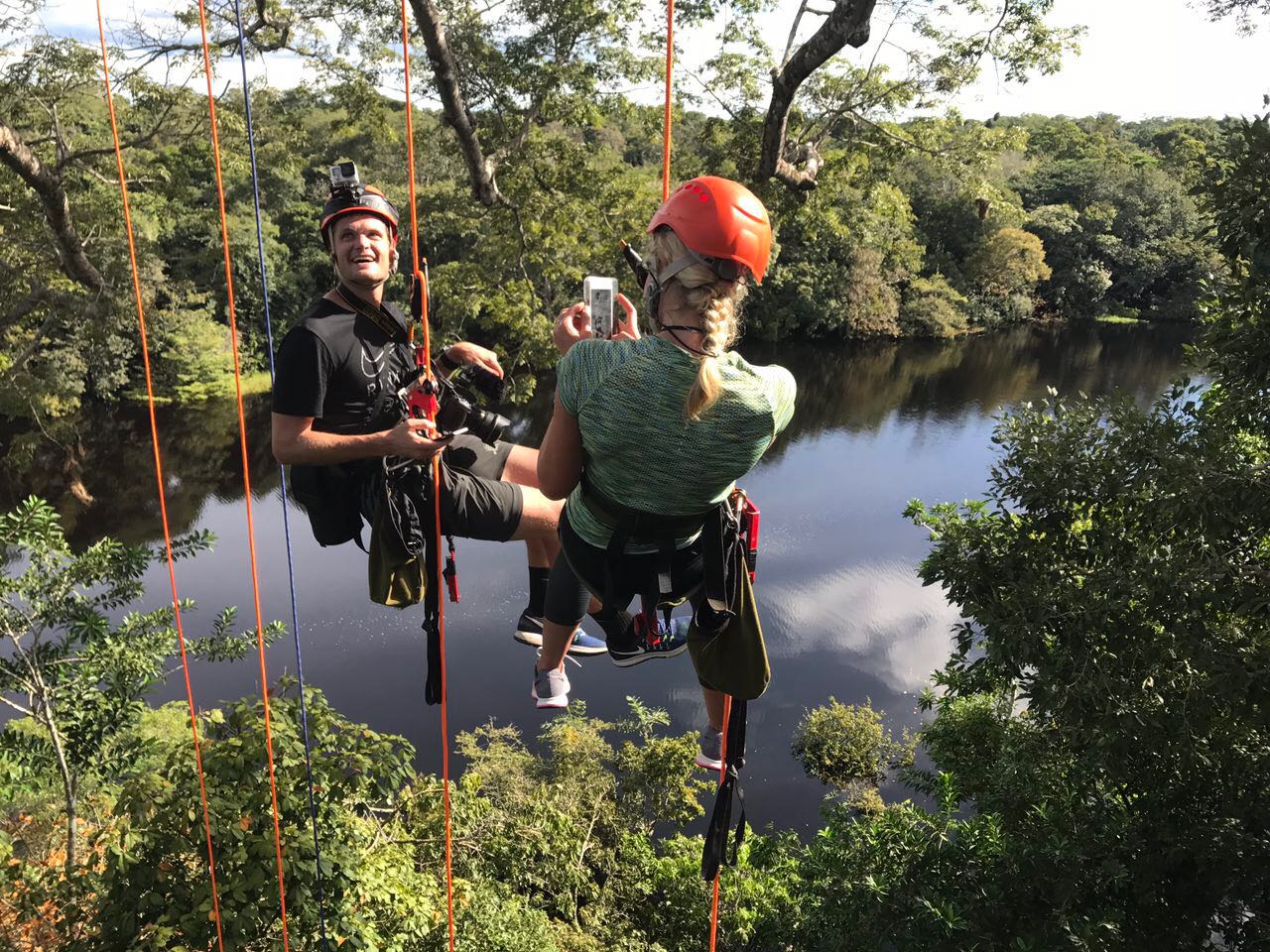
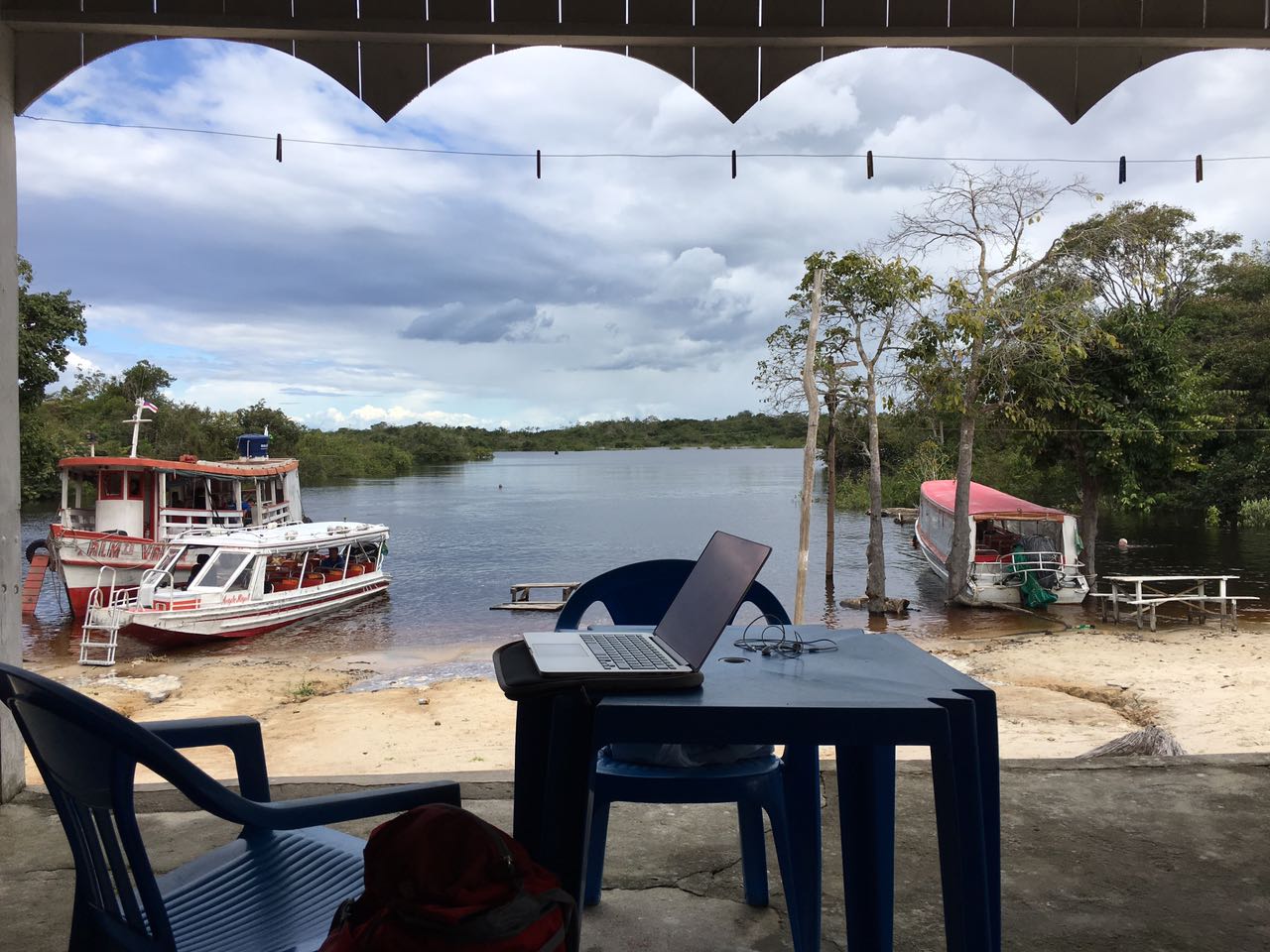
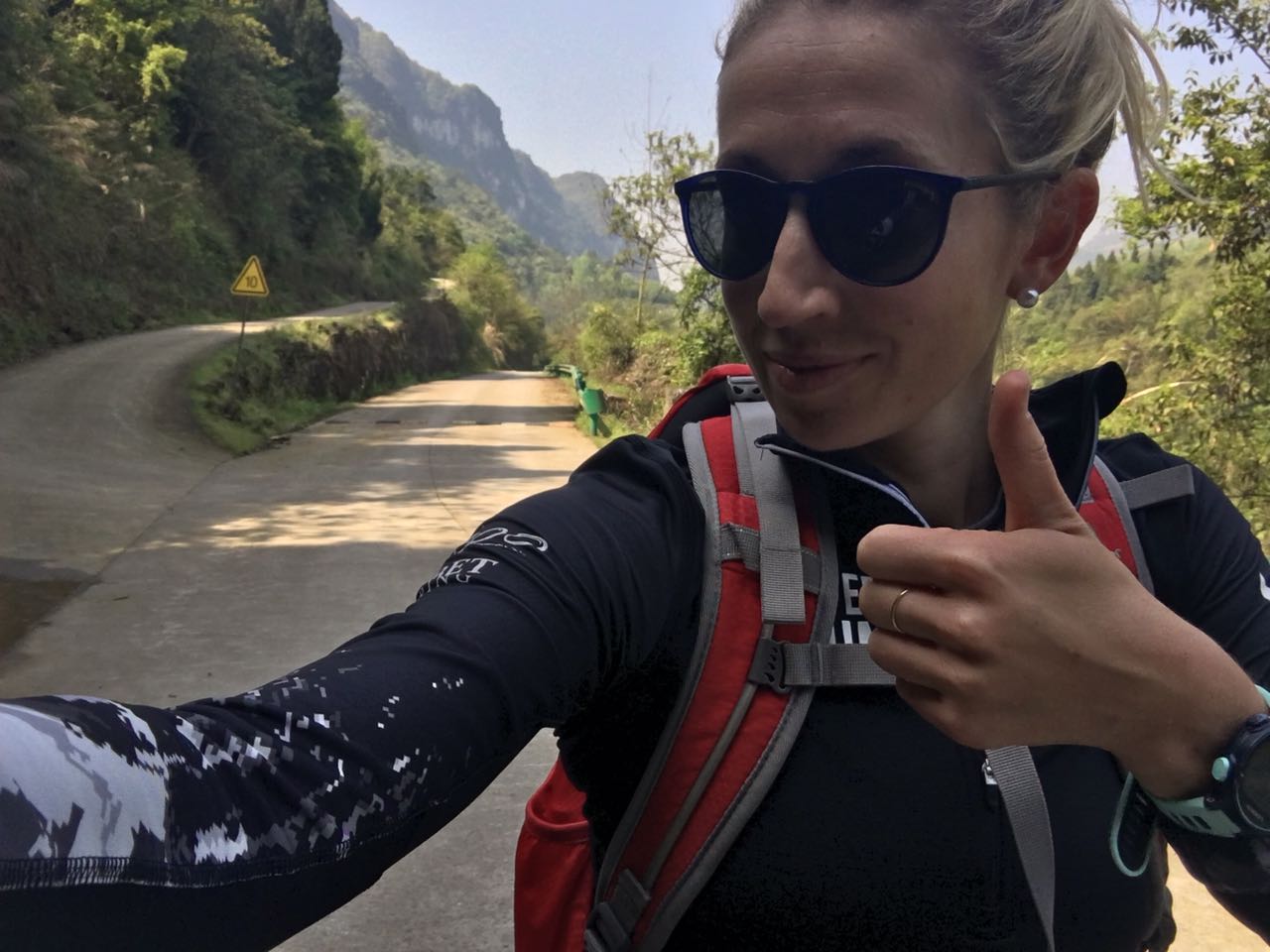
Story always is king. Not sightseeing.
Here’s the team walking back after a long day of running. You can easily spot the social media manager in her natural environment (right at the end of the video)
To find out more about the #Run4Water campaign, check out www.minaguli.com or facebook.com/MinaGuliWater/
Heleen Mills manages Social Media for Treeshake, a tech-savvy communications consultancy that runs global campaigns for change.
Licensed through #CreativeCommons. #Freeforuse with #attribution.
